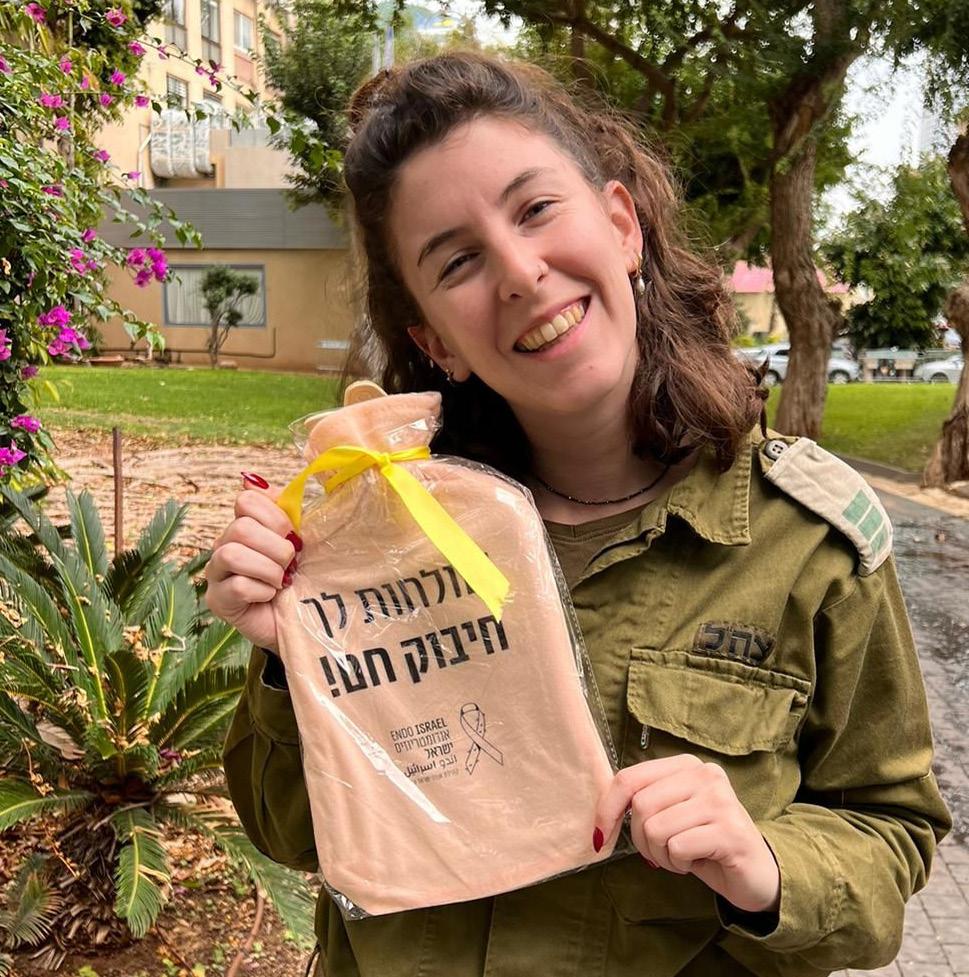
•
•
•
•
•
www.jca.org.au/donate Support our local Jewish community Fostering a closer Jewish community FREE VOL. 105 Tuesday, 12 March, 2024 / 2 Adar II 5784
Ameer Jhingoor
Brad Sewitz
Craig Haycock
John Cohen
Justine Cameron
Peter Hersh
•
•
•
•
•
Ameer Jhingoor
Brad Sewitz
Craig Haycock
John Cohen
Justine Cameron
Peter Hersh OAM
Seniors’ Living Feature page 9
28-year-old Shir Shachar is studying in the Faculty of Medicine at Tel Aviv University. With the outbreak of war, the Israeli Defense Forces’ reservist was called up for duty (photo courtesy Tel Aviv University) page 5
SIMONNE WINECIER JDC (THE JOINT) AUSTRALIA
On February 24th, Ukraine marked two years of crisis. Two years of bombing, destruction and pain. February 24th also marked two years of people reaching out to help Ukraine’s Jews endure the unbearable.
As you read this, Ukraine’s Jews are sitting through their third freezing winter — bitter wind rushing through bombedout windows, the constant threat of blackouts and heating prices that few, if any, can afford. Prices are rising and resources are dwindling.
Children are facing yet another year without regular schooling, families are struggling and trauma is everywhere.
JDC (The Joint) has been there since day one. With your support, we launched an immediate response to the crisis and adapted it as the conflict barrelled on and needs evolved. Powered by your generosity, we brought food, medicine and winter aid to Ukraine’s Jews.
We evacuated people that wished to leave and helped refugees acclimate to their new homes. We provided –and continue to provide – emotional and physical assistance to the tens of thousands of Jews who remain in Ukraine. As the second anniversary of the crisis is now behind us, the conflict is as intense as ever. Recent weeks have
JUDAICA
QUIZ
RABBI DAVID FREEDMAN
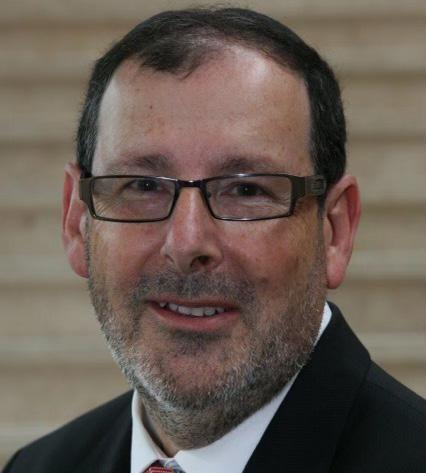
The Purim story played out in ancient Persia and involved danger, drama and the actions of the brave Queen Esther and her wise uncle Mordechai. It involved King Achashverosh’s wicked advisor who had evil plans to destroy the Jewish people.
Long story short: Esther intervened on behalf of all Jews and communicated Haman’s plot. The king reacted and the Jews were saved (yes, all is revealed in much more depth in the Book of Esther).
Today, we revel, we rejoice and we repeat this important chapter of our history. We also dress up in costume –kids and adults alike – and eat delicious triangular-shaped hamantaschen. We send Mishloach Manot, or gift baskets, and give to those less fortunate and sit down to enjoy a sumptuous Purim seudah, or feast. If you are getting together with family for a Purim Seudah, make sure you have a copy of this quiz on hand to read, learn and enjoy, in between sampling different varieties of hamentaschen. Rabbi Freedman has expertly woven questions together within the Purim framework just for you.
1. In a Jewish Leap Year, does Purim occur in Adar 1 or Adar 2?
2. How many times over a cycle of 19 years does the Jewish calendar include a leap month:
a) 7 b) 9 c) 11 ?
Two years of crisis in Ukraine

seen severe bombings in Odesa, Kyiv and Dnipro.
JDC (The Joint) staff often come to work in bullet proof vests. Destruction is everywhere. While Ukraine’s Jews remain strong, the war is taking a toll. More than ever, they need to know they are not forgotten.
With your help, we will continue to stand with and assist the Ukrainian Jewish community in the coming year. JDC (The Joint) Australia aims to provide life-saving material aid to those who need it most.
This means food and medicine for the elderly and newly poor, utility subsidies,
Test your knowledge
3. Why does the Jewish calendar include leap years?
4. Identify the first person and the last person to be mentioned by name in the Book of Esther.
5. On Purim we must read the Megillah (the Scroll of Esther) and perform what other mitzvot?
6. Mordechai was honoured by being placed upon a horse and led through the streets by Haman. What was special about the horse?
11. The Fast of Esther takes place on Adar 13. If that date is Shabbat, when does the fast take place?
12. How did Roman carnivals or Shrovetide influence Jewish celebrations during Purim?
13. What is a Purim Spiel?
14. Give the English translation of these two traditional Purim foods –Hamantaschen and Oznei Haman.
15. Purim Meshulash, the three-fold Purim, is a somewhat rare event.
Good luck. Enjoy. Hopefully, learn something new about the joyous festival of Purim and its traditions..
7. Purim comes from the Hebrew (or perhaps Persian) word pur. What does pur mean?
8. What is the difference between Purim and Shushan Purim?
9. Which tractate or massechet of Mishnah deals with the celebration of Purim?
10. Haman is associated with an archenemy of the ancient Israelites mentioned in the Book of Exodus and again in the Book of Samuel. What was the name of this people:
a) The Philistines b) The Romans c) The Amalekites, or d) The Moabites?
Affecting the celebration of Purim in Jerusalem, it occurs only in those years when Shushan Purim coincides with Shabbat, as it will do in 2025. Following 2025, when will the next Purim Meshulash occur?
a) 2035
b) 2045, or c) 2055?
16. Many Jewish communities around the world established local "Purims" to commemorate their deliverance from a catastrophe or an antisemitic ruler or edict. One of the best known is Purim Vinz. In which German city did this take place?
warm clothing and fuel to help Ukraine’s Jews survive the winter and ensure that both internally displaced Jews and refugees have the help they need to survive in their new homes.
https://fundraising.thejoint.org.au/ ukraine-emergency-response
17. Purim was banned by the Nazis the day after which fateful event?
18. Nazi criminal Julius Streicher was heard to sarcastically remark "Purimfest 1946". Where was he when he said these words?
19. Which world leader, considered an enemy of the Jewish people, was suddenly paralysed on Purim 1953 and died four days later?
20. Which British actor born in London in 1933 and later made a dame by Queen Elizabeth II in 2015 for her charitable services played the lead role in the 1960 20th Century Fox film ‘Esther and the King’? She is perhaps best known for her role as Alexis Colby in the TV series Dynasty.
21. ‘One night with the King’ was a movie released in 2006. It retells the story of Purim and was based upon Mark Andrew Olsen's novel Hadassah: One Night with the King. Who was Hadassah?
22. Fill in the missing name from this Purim prank from February 24, 2021 (a day before Purim that year). The Jerusalem Post tweeted that Benjamin Netanyahu could not get hold of [insert person’s name here] for one month because the latter deliberately gave him a wrong number.
23. A ra’ashan is better known as a what?
24. During the Second Temple period, there was a Jewish custom to make a public proclamation on the first day of Adar, reminding the people that they should prepare what?
25. According to tradition, which famous biblical character was born and died on 7th Adar?
2 the sydney jewish report | Mar 2024 ANSWERS PAGE 19
AROUND THE COMMUNITY
A JDC volunteer embraces a Ukranian Jew in Kharkiv, after she breaks down having witnessed the destruction in the city centre (photo by Arik Shraga)
 AROUND
AROUND
THE COMMUNITY
ROBERT SCHNEIDER AUSTRALIAN FRIENDS OF THE HEBREW UNIVERSITY
The tragedy of the past few months reminds us that while the Jewish population comprises just 0.2 per cent of the world, our impact and contributions are disproportionately significant. The Nobel Prize is a celebration of excellence and is considered the most prestigious award in the world. It is awarded to “those who, during the preceding year, shall have conferred the greatest benefit on mankind'. Over the last 122 years, 22 per cent of all Nobel Prize winners have been Jewish. Eight Nobel Prizes have been awarded to scientists and academics associated with the Hebrew University of Jerusalem. That is the highest number bestowed to those associated with any Israeli university.
Among the eight is one given to Albert Einstein, one of The Hebrew University’s founders. Einstein, together with Sigmund Freud, Chaim Weizmann and other major Jewish scholars and leaders of the early 20th century founded the Hebrew University of Jerusalem in 1918.
These awards are a testament to the extraordinary work of the university, conducted across six campuses, that has led to ground-breaking achievements. They include treatments for Alzheimer’s disease, Parkinson’s disease and ovarian cancer, agricultural advancements,
A tradition of excellence

new perspectives on the legal system, politics, and society, cutting edge technology for smart vehicles and eyesight restoration, to name but a few. All have contributed to improving life on Earth.
The Hebrew University brings together top researchers from all over the world and is actively involved in the most innovative research conducted on an international scale. State of the art research centres, laboratories and facilities are part of what has enabled Hebrew University-affiliated researchers to register more than 10,000 patents and
to successfully commercialise numerous innovations.
Pivotal to the “Start-Up Nation”, the Hebrew University has incubated more than 180 start-ups. Professor Asher Cohen, President of the Hebrew University said that "In recent years, the Hebrew University of Jerusalem has become a significant catalyst for companies across a wide range of verticals. There is no doubt that the knowledge and tools that students acquire here will help them build technologies that will benefit all humankind, with a special focus on sustainability and battling climate
change.” One of these rising start-up stars is Believer, a food-technology company pioneering the first scalable lab-grown meat production system that can feed the world. Founded in 2018 by Hebrew University’s Professor Yaakov Nahmias, Believer's mission is to ensure that future generations can enjoy the meat we know and love in a costeffective and sustainable manner.
Believer’s trajectory and innovation is one of countless success stories to come out of the Hebrew University. The same Professor Nahmias is also a pioneer in humane medicine, having established a company called Tissue Dynamics to simulate human physiology on a microchip, thus lessening the need to have to conduct experimentation on animals. Tissue Dynamics focus is on ethical and cost-effective drug development.
Students from all around the world including Australia can access many exciting opportunities at the Hebrew University, including exchange programs, summer courses and full-time study in English. For more information, please visit The Australian Friends of The Hebrew University at austfhu.org.au.
The University may be located in Israel, but more than a century since its establishment its work continues to transform our global landscape on a scale far greater than its founders could ever have imagined.
Neta was injured in the Kfar Gaza massacre –a new Technion invention helped her walk again
On the morning of October 7 in Kfar Gaza, Neta Portal and her partner Santiago Peres's tranquillity was shattered by the blare of sirens, signalling the start of a nightmare.
As hours went by, the reality of their situation became terrifyingly clear. Amidst explosions and the ominous news of a potential terrorist infiltration in their kibbutz, Neta and Santiago sought refuge in their home's safe room, a decision that would prove lifesaving. Their ordeal escalated as their apartment was targeted and they found themselves under direct fire. Santiago sustained injuries trying to protect them, while Neta was also struck by several bullets.
Both Neta and Santiago survived, injured but hidden, until they were rescued by Neta’s father, Shimon Portal, who is a deputy chief superintendent in the Israeli police force.
The aftermath of the attack left Neta grappling with severe injuries, particularly to her left leg, which bore the brunt of the assault. Her road to recovery began at The Loewenstein Rehabilitation Medical Center, where the complexity of her wounds posed a significant challenge. The traditional methods of rehabilitation were not viable due to the nature of her injuries. It was imperative that she find a way to walk without putting weight on her damaged ankle, to prevent further harm and promote healing.
Enter Dr Dana Solev from the Technion’s Faculty of Mechanical Engineering, who, alongside Dr Amir Haim from The Loewenstein Rehabilitation Medical Center, embarked on developing a custom orthotic device that would allow Neta to walk again. This device, a marvel of engineering and compassion, was designed to offload weight from the injured ankle, transferring it to the shin and thus enabling Neta to maintain mobility without compromising her recovery. The device was a testament to the power of innovation in the face of the unique challenges doctors in Israel experience. Using 3D scanning and computational design, the team at Technion tailored the brace to fit Neta's precise measurements, ensuring optimal comfort and effectiveness. This personalised approach not only facilitated Neta's physical rehabilitation, but also heralded a new dawn in the treatment of such injuries.
Neta's journey from the brink of despair to the threshold of recovery is a story of resilience, a testament to indominable spirit overcoming adversity. The collaborative effort between medical professionals and engineers at Technion underscores the potential of interdisciplinary approaches in solving complex health challenges. As Neta takes her first steps towards a new beginning, her story serves as a beacon of hope for others facing seemingly insurmountable obstacles, proving that innovation, courage and perseverance can pave the way for healing and renewal.
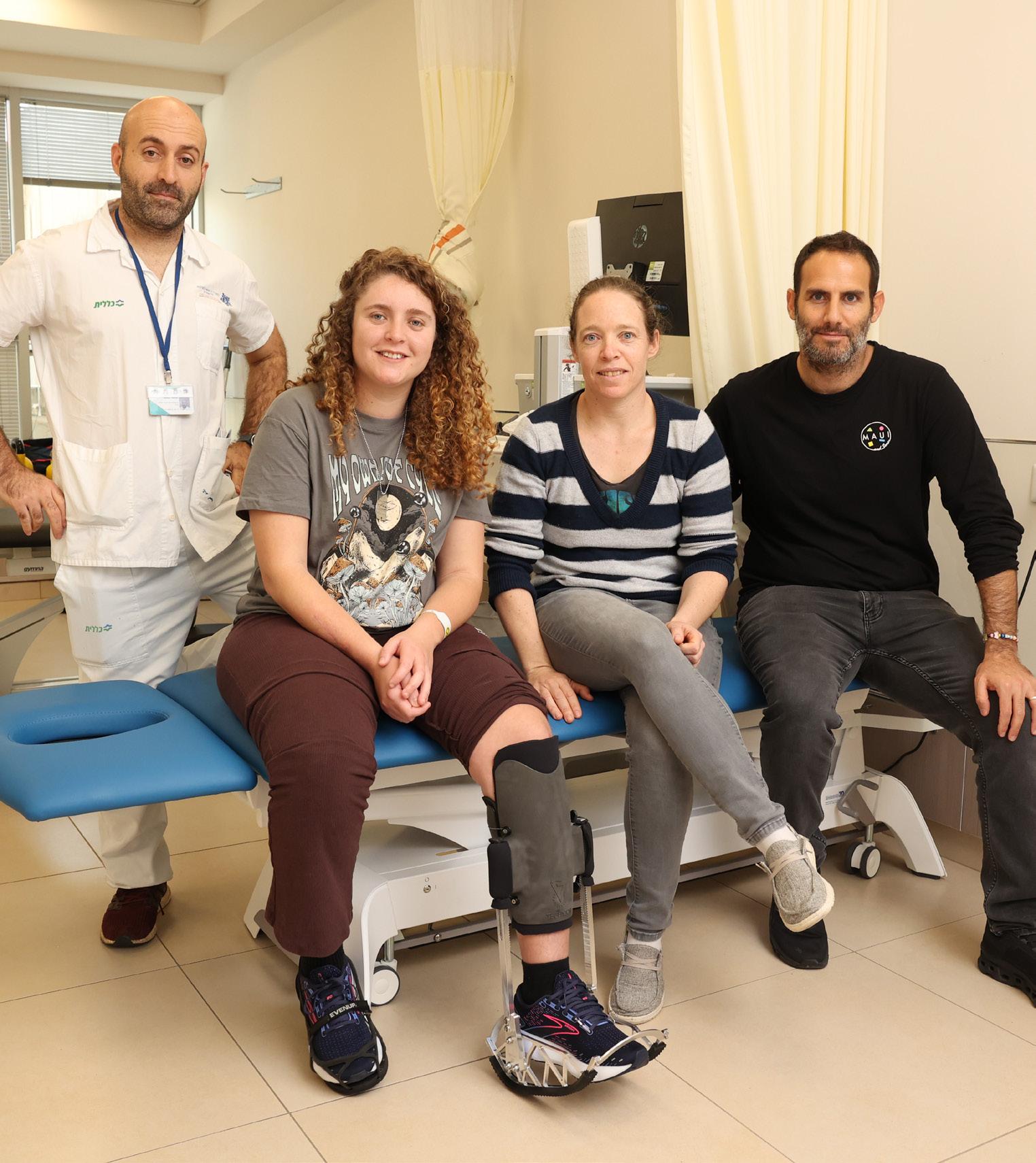
4 the sydney jewish report | Mar 2024
Hebrew University’s Professor Yaakov (Koby) Nahmias with his microchip
TECHNION AUSTRALIA
From left: physiotherapist Ahmed Mawase, Neta Portal, Dr Dana Solav from Technion’s Faculty of Mechanical Engineering and Lee Jordan, laboratory engineer
AROUND THE COMMUNITY
DAVID SOLOMON AUSTRALIAN FRIENDS OF TEL AVIV UNIVERSITY
New data from Tel Aviv University (TAU) –with 30,000 students, Israel’s largest and most diverse university – reveals a major change in women's contribution to the war effort compared to the past. One of every three reservists on campus is a woman.
In the first months of the October 7th war, 6,657 TAU students were called up for reserve duty in the IDF. This is more than 22 per cent of the total student population. Of this number, 2,228 were women – 34 per cent of the total. Moreover, in January 2024, after most reserve soldiers had been discharged, 2,545 TAU students including 755 (29 per cent) women, remained in active service.
By faculty, the composition of the 2,228 female reservists is as follows: 481 from the Faculty of Medicine, 394 from Engineering, 373 from Life and Exact Sciences, 308 from Social Sciences, 167 from Law, 100 from Humanities, 96 from Management, with the rest from other units. Professor Neta Ziv, vice president for Equity, Diversity and Community at TAU, applauded the reservists on campus. "Women's great contribution is apparent in all spheres of life: the military, the public and, of course, the civic arenas. TAU acknowledges and honours the contribution of female reservists and does everything in its power to help all students who served or are still serving in the reserves to successfully resume their studies in this challenging academic year."
The University has determined that all students called up for reserve duty are entitled to a grant based on their needs, as

Women playing a changing war role
well as the type and length of their service. The grants express TAU's appreciation, as well as the understanding that when these students return, they will need to concentrate on their studies, with little time left for work. These heroic young people stopped their lives, their studies and their dreams to protect Israel. TAU believes it is its duty to free reservist students from anxieties about missed studies and work, as well as ensuring that they can smoothly and fully resume their lives once they return from combat. In previous military operations, this kind of help made all the difference for students that might have otherwise lost a semester or an entire academic year.
TAU has launched the Uniform to University Scholarship Fund to help reservists transition from the battlefield back to campus. Assistance will come in the form of scholarships to be allocated as tuition discounts, housing aid or for emergency expenses, personalised academic tutoring to catch up on missed course material, complete assignments and succeed in exams, and subsidised psychological counselling for treating anxiety, depression and other forms of trauma.
Shir Shachar, 28, is studying for a Master's degree in the Faculty of Medicine: "I was called up for reserve duty right after the war broke out and served as a researcher in the Ground Forces' Learning Unit. Our team included both men and women, with each of us contributing significantly to the common war effort. The commitment, dedication and determination of all reservists to their tasks, whether in the field or behind the lines, is very important to success in combat. Only by working together, with everyone doing all they can, can we win the war."



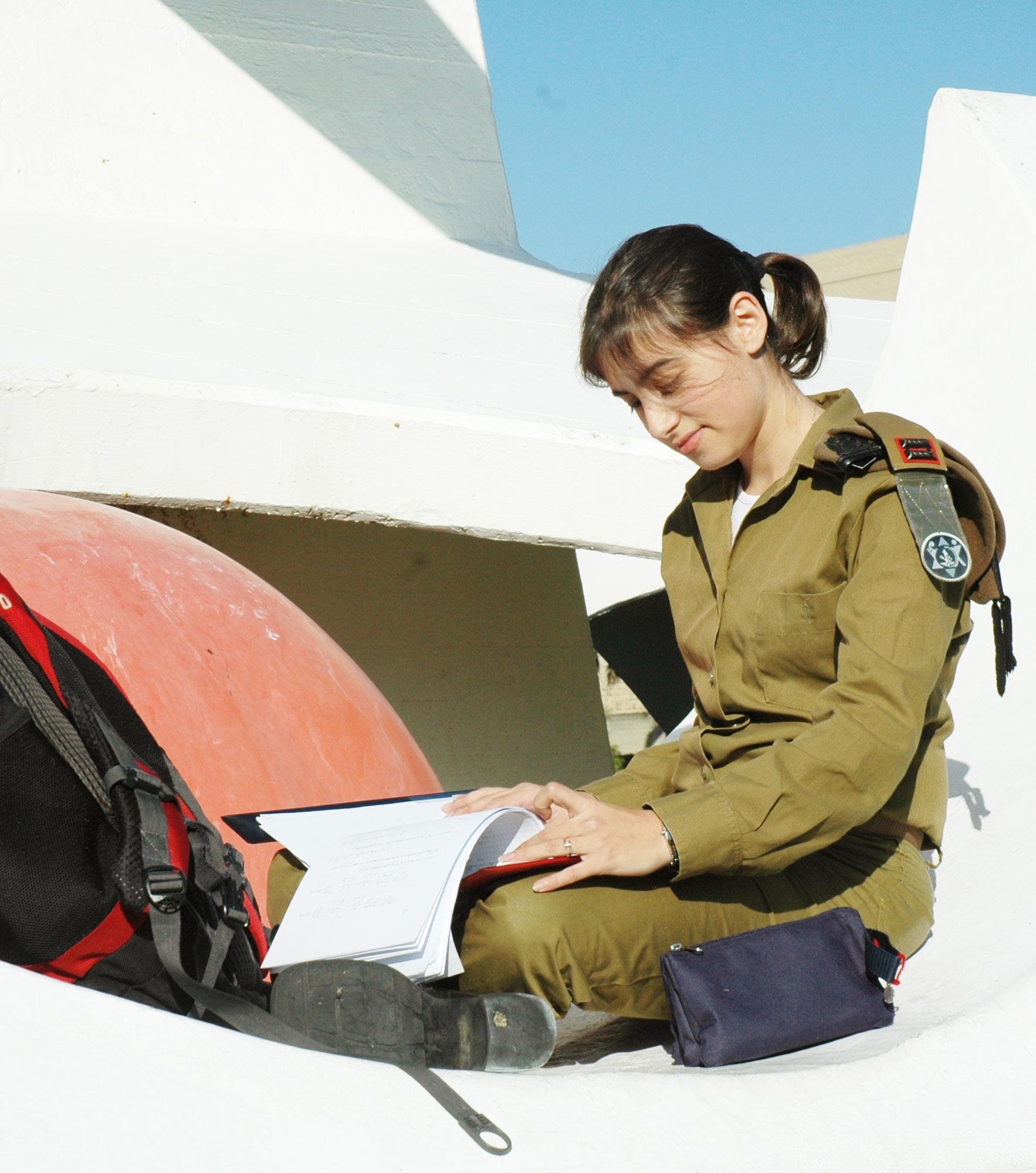


Duty called and they came - now help fulfill their calling.








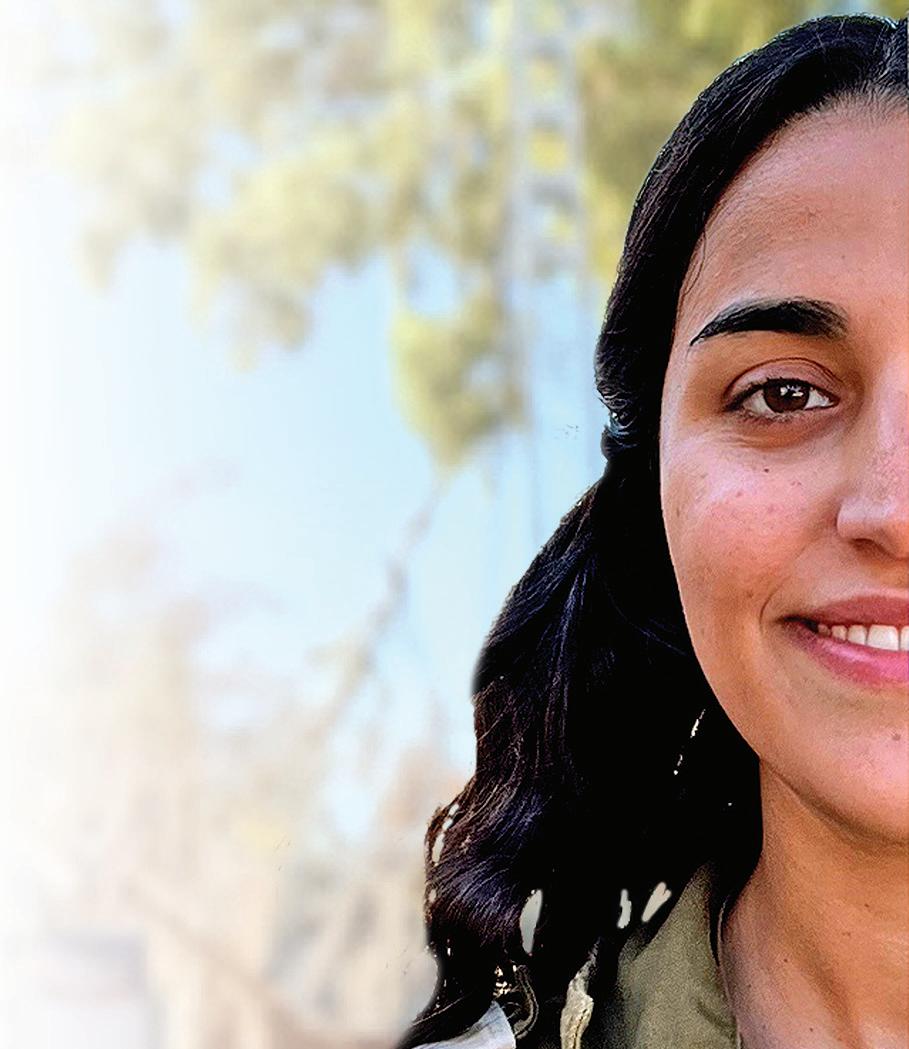
When duty called, they came! Now, it’s up to us to help them return to classworry-free - and become the bright future of Israel. The moment the war broke out Israel re-enlisted its reservists and over 6,600 of them are Tel Aviv University students. They already completed their regular IDF duty and are now in a different chapter in their lives: the one where they study to make their dreams and goals a reality. It’s up to us to ensure that our returning students, our heroes, have the academic and financial assistance they need to succeed in their studies. Help our students follow their true calling.
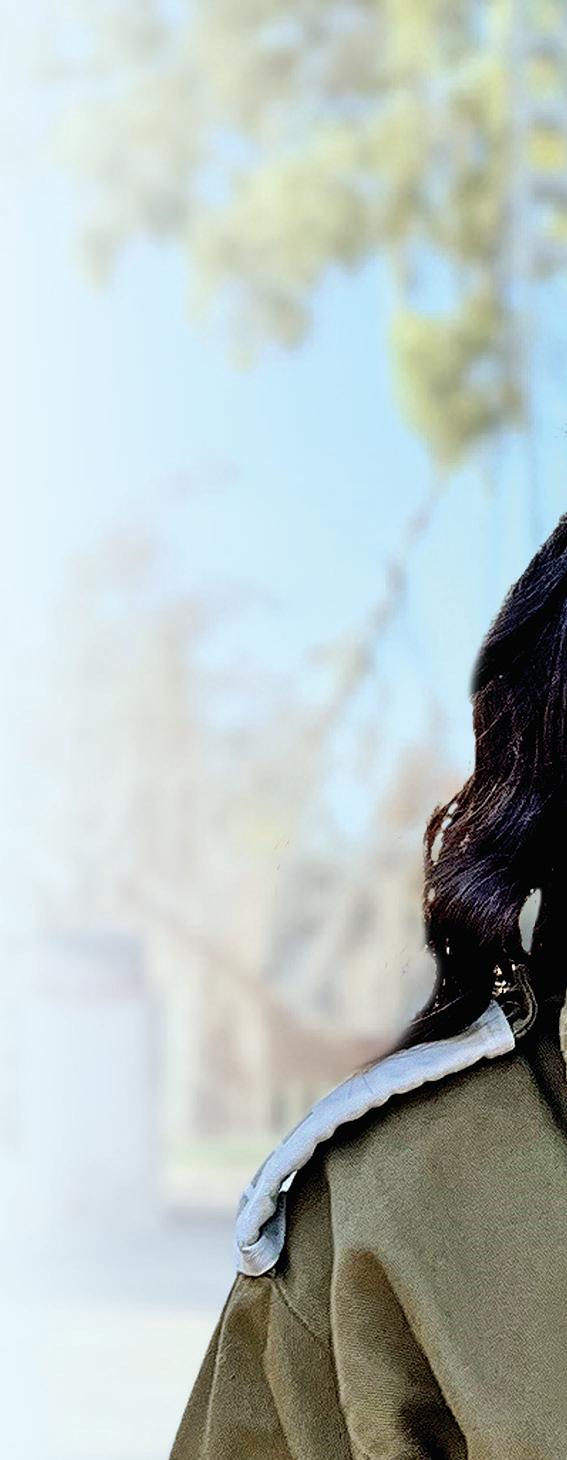
Support TAU’s Uniform to University Scholarship Fund.
“These are tough times and we assist as much as we can. I’m looking forward to returning to studies and with a little help, will be able to pursue my dreams.” – Carmel aftau.asn.au


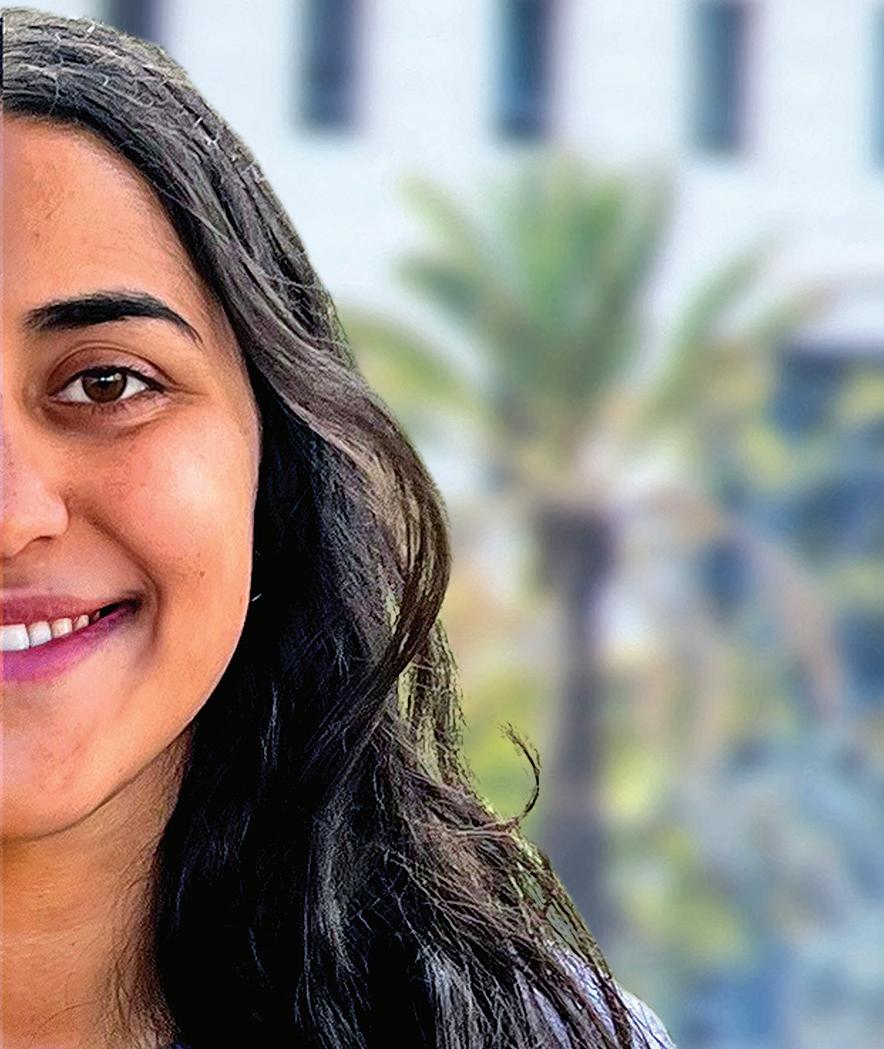




5 the sydney jewish report | Mar 2024
Tel Aviv University student reservist Shir Fuchs squeezing in study while on active duty
ROBERT GREGORY AUSTRALIAN JEWISH ASSOCIATION
Since the October 7th Hamas attack on Israel, Australians have been confronted by shocking news. The stories out of Israel are horrendous. Most of the victims of the October 7th attack were Israelis, but the terrorists showed no mercy to anyone. Among the 1,200 murdered were citizens of Nepal, Sri Lanka, the Philippines, Thailand and, even, Tanzania.
Another shocking development has been the hatred playing out on Australian shores. Days after the attacks, a mob chanted antisemitic chants at Sydney’s Opera House. Activists have specifically targeted the neighbourhoods where Australian Jews live. Convoys waving the Palestinian Authority flag have targeted Caulfield in Melbourne and Bondi in Sydney. Australia’s multicultural fabric is being tested like never before.
Australia’s Jewish community is tiny. It has never comprised more than half a percent of Australia’s population. Jews came to Australia on the First Fleet, but the community is overwhelmingly an immigrant community. The largest growth came with refugees fleeing the Holocaust. It has been strengthened by more recent, successive waves of immigrants, including those from the former Soviet Union and South Africa.
The Middle East conflict is disrupting Australia’s’ multicultural harmony
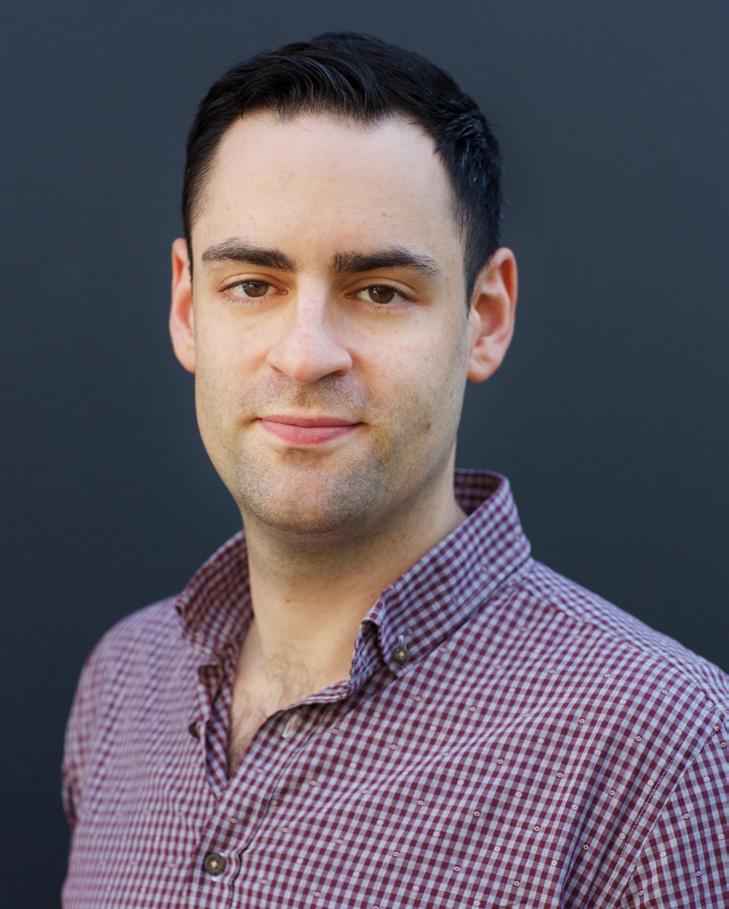
Jews have been incredibly successful and contributed greatly to Australia. The Australian Jewish community has produced multiple Governors General, military leaders, a federal Treasurer, Chief Justices, a Premier, accomplished businessmen and women, scientists and thinkers.
Australian Jews have won the Nobel prize, the Archibald Prize, Olympic Gold
and just about every honour for Australia. Businesses founded by Australian Jews are ubiquitous. Many Australians would interact daily with places like Westfield, Myer, Meriton, Spotlight, Chemist Warehouse and Kogan.
Now, many in the Jewish community are feeling very unsafe. Antisemitic incidents are up an astounding 738 per cent since October 7.
The Australian Jewish Association has received threats and we work closely with the police. For the first time I hear some members of my community questioning whether they have a future in Australia. This should worry all Australians.
The Australian Jewish community has been touched by the response from many communities. We have received messages of support from the Hindu, Assyrian, Kurdish and many other communities.
Those who show the most understanding have often experienced terrorism and religious extremism themselves.
Unfortunately, not all parts of the community have behaved honourably. Chief among the instigators is the Australian Greens. This political party pretends to promote tolerance, but
really fuels hatred and division. They can often be found at the scene of disgraceful antisemitic incidents. The NSW Greens promoted the antisemitic Opera House protest. NSW MP Jenny Leong spoke about “Jewish tentacles”.
Federal leader Mehreen Faruqi was forced to delete an image she posted of the Jewish Star of David being placed in a garbage bin, alongside the words “keep the world clean”.
Antisemitic incidents at the Opera House and outside a Caulfield synagogue not only cause tensions in Australia, they also risk damaging our reputation abroad.
AJA is calling on all political parties to pledge to preference the Greens last. Some prominent people, including former Foreign Minister Alexander Downer and Liberal MP Julian Leeser have made the same call, but we have yet to see Labor act on this. Those spreading hate must be held responsible, otherwise Australia’s multicultural harmony will come under major strain.
A shaliach’s impressions from O-Week: as the threat grows, so do we
TOBIAS SIEGAL AUJS SHALIACH
As anti-Israel rhetoric and antisemitism become increasingly rampant on campuses across the world, Jewish students feel more threatened than ever and are naturally drawn to a sense of community they wouldn’t otherwise actively seek.
This became evident to me during my visits to nearly a dozen campuses throughout Australia and New Zealand during the month of February for Orientation Week (O-Week). I witnessed first-hand the challenges Jewish students are facing and the coping mechanisms upon which they rely.
During my visits to AUJS stalls in Sydney, Melbourne, Adelaide, Perth and Auckland, I encountered numerous incidents of verbal abuse, Israeli flags being ripped down and torn, and constant gestures and smirks that would make anyone feel vilified and unwelcome.
While more incidents were reported in Melbourne and Sydney, smaller regions face the same challenges, while often lacking the resources and support to tackle them. In Adelaide, “Free Palestine” pins were left on our designated table before we got there. In Perth, a student came to our stall and confidently stated, “Israel has killed more people than Nazi Germany did.” I would not have classified this as an incident if that student had not been on
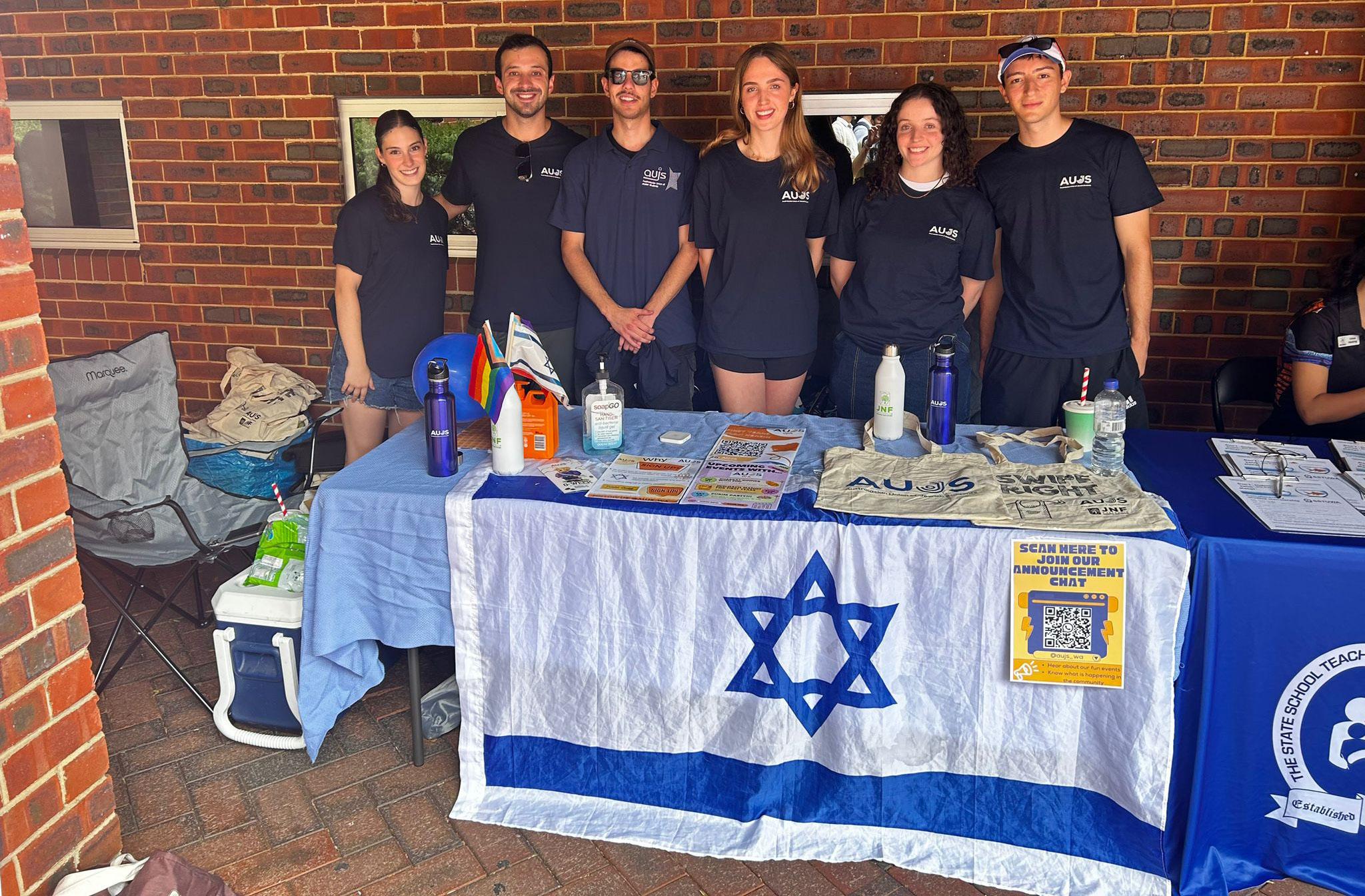
the university’s student guild – the main body on that campus that is responsible for representing all students on campus.
And in Auckland, the Auckland University campus was riddled with posters that read: “Zionists are not wanted here”, alongside a picture of a local Jewish lecturer.
While campuses in Melbourne and Sydney are more receptive to their relatively large number of Jewish students and are more inclined to take
adequate action to ensure their safety, that is not always the case in the smaller regions.
And still, it’s not all bad. Despite the many challenges, the situation is not as dire as we feared it would be. Not yet, at least. The threat should not be underestimated, of course, but I did encounter many incidents that left me more optimistic than I was before departing on my month-long journey. The vast majority of the non-Jewish students
who I met were not as invested in the war as one would expect. Many curious students came up to ask reasonable questions about the situation and were genuinely interested in a discussion. Others were looking to learn more about Jewish culture and Hebrew, and did not bring up Israel or the war at all.
What I found most encouraging was the significant number of new sign ups that we got. At this point last year, AUJS had 543 membership sign ups, while this year we are already at 917.
That is an increase of nearly 70 per cent. AUJS New Zealand doubled its membership from 40 to 80, many of whom were Americans on student exchange programs, who said they were extremely relieved to see a Jewish student society on campus.
But the fight is far from over. March has been dubbed “March for Palestine” month by many pro-Palestinian groups and friction on campuses will undoubtedly continue to increase. In many ways, O-Week has provided Jewish students with a relatively safe space.
With less security and monitoring by universities, unfortunately more incidents are likely to occur. But as the threat grows, so do we, and so does our commitment to supporting Jewish students everywhere.
6 the sydney jewish report | Mar 2024
Jewish students and the AUJS shaliach Tobias Siegel (second from left) at the AUJS stall at Curtin University in Perth, February 2024
AROUND THE COMMUNITY
AJA CEO Robert Gregory
The NSW Seniors’ Week Festival is a time to celebrate the contributions of retirees to our community and a time for retirees to discover new ways of getting involved in their community.
This year, Purim falls in Seniors’ Week and COA is providing a range of entertainment, talks and activities, which are open to the public and aimed at bringing the community together. To find out more details and how to reserve your place, go to www.coasydney.org
When COA was created in the 1980s, members realised that the best way to spend their retirement was by immersing themselves in communal volunteer work. It gave them a sense of purpose, fulfillment and connection, vital to mental health and enhancing quality of life. Forty years later and this remains truer than ever.
Two unique volunteer opportunities, which allow seniors to give back to the community and gain purpose in a most profound way are the revived Hannah Meyer Project and a new initiative, Minyan Men.
The Hannah Meyer Project has been active for more than 30 years. In fact, it dates back to the late 1980s, when Hannah Meyer (zl), Esta Levy OAM (zl) and Joe (zl) and Lee Borman (zl) joined
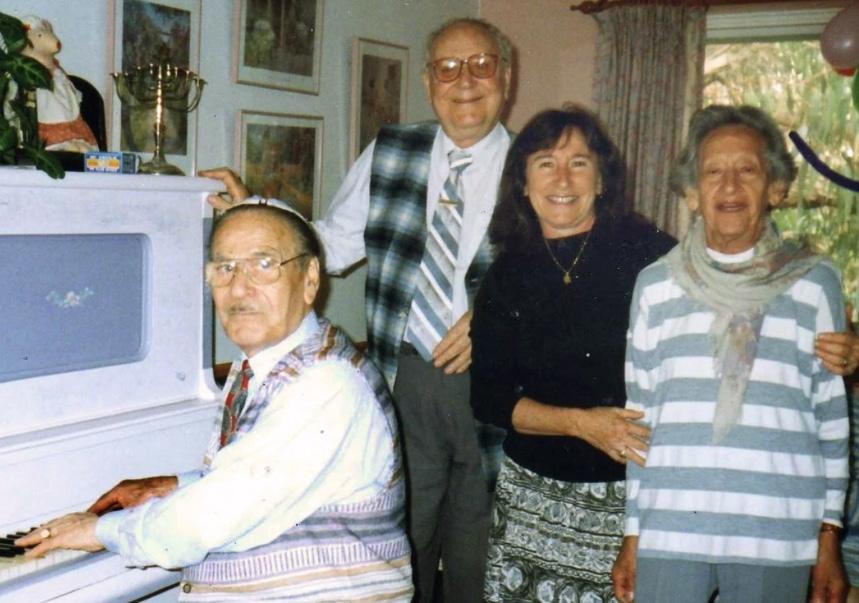
forces and recruited volunteers to bring Yiddishkeit to Jewish residents living in non-Jewish aged care facilities.
This service sees volunteers visiting in the hours before Shabbat and Festivals. They perform kiddush with residents, light candles, make hamotzi, sing traditional songs, talk about the week’s parsha, and at Festival times bring along those special treats associated with the chagim.
This year, an extension of the Hannah Meyer Project will be bringing residents Hamantashen, baked by volunteers from COA and Jewish House at nonprofit organisation Our Big Kitchen. The bake represents a real joining of community organisations to produce something meaningful and evocative – a simple “Purim cookie” that brings back childhood memories, family and connection to our essential shared
Jewishness. Minyan Men is a volunteer service harking back to the early years of COA. At that time, many COA members were older Holocaust survivors and had little or no family in Australia. When they passed, many had no one to make a minyan for them, which grieved the earliest members of COA, who would volunteer for this purpose. Fast forward four decades and, sadly, it is still not uncommon for funerals to be without enough men to make a minyan and to say Kaddish.
To ensure that our community comes together in these moments, COA and General Manager Robbie Clifford have launched Minyan Men.
Minyan Men will be a cohort of male volunteers from the Sydney community, who, when needed, will receive a group WhatsApp message to tell them about a funeral, burial or shiva minyan.
The call is going out now to Jewish men to be part of the inaugural volunteer group. To become a Minyan Man, just scan the QR code to join the WhatsApp cohort.


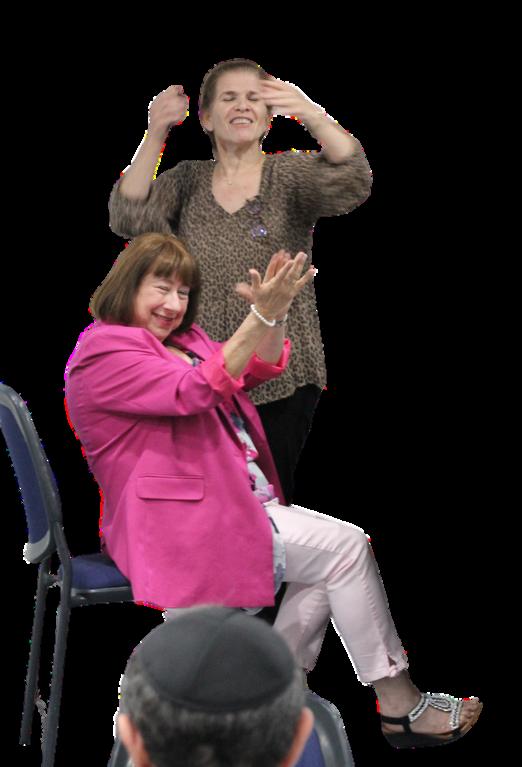
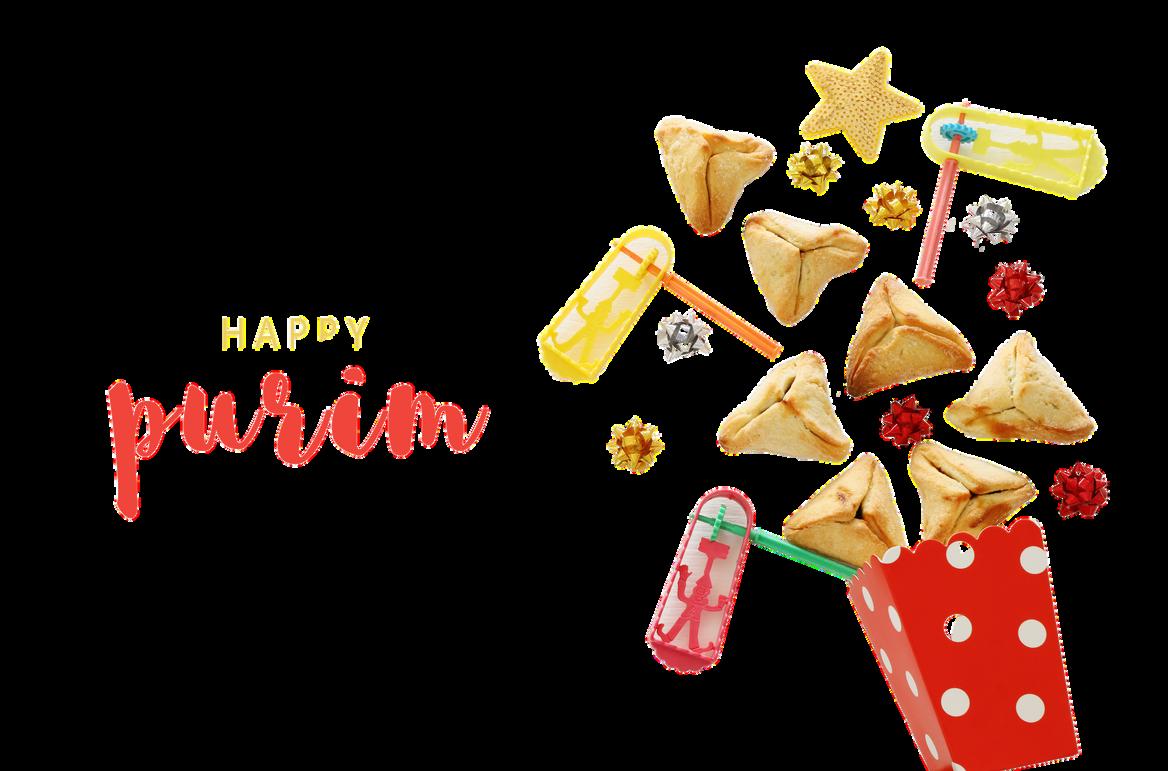

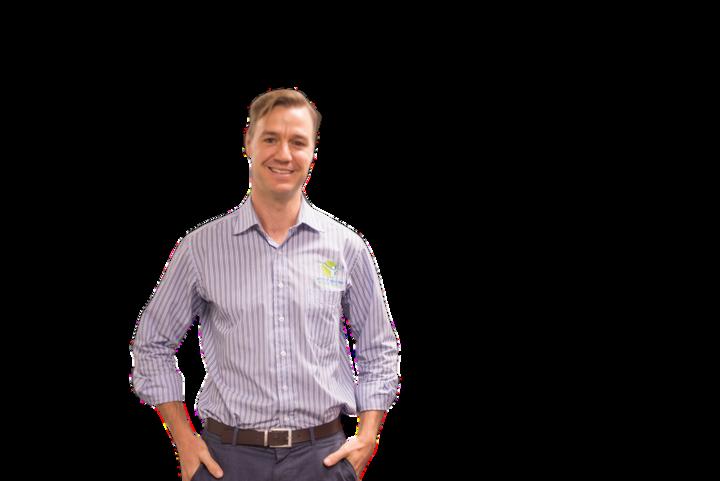
7 the sydney jewish report | Mar 2024
COA volunteers – seniors with purpose COA AROUND THE COMMUNITY
Zimra from Jewish Care will take you Find out about all the support, servic navigate the maze of th Tues 19th 7:15pm Hamantashen Bake Get active and moving workshop Join Active Seniors Founder, Taylor Harrison, for tips and exercises to maintain physical well-being. Back by popular demand! A musical feast, showcasing Jewish artists, their impact on musicals and cinema. Twilight On Broadway S e n i o r s W e e k & S e n i o r s W e e k & P u r i m P u r i m a t C O A a t C O A Join COA and Jewish House at OBK for a Purim Hamantashen bake! Hamantashen go to nursing homes and retirement villages March 2024 For info contact Jackie on 8367 5051 / j. ryker@coasydney.org Mon 18th 1:00pm Thurs 14th 6:30pm Mon 25th 11:30am
Brothers Alf and Joe Borman, with Hannah Meyer and Esta Levy OAM, providing Yiddishkeit and connection to culture at the Vaucluse Nursing Home in 1989
A life of dignity and security through Amigour and UIA
there were terrorists in Ofakim, through a text I received from my daughter.”
Keren Hayesod-UIA (KH-UIA) provides affordable, sheltered housing for seniors in need across Israel through “Amigour” – one of the four KH-UIA national priority projects. Today, more than 7,500 seniors, including Holocaust survivors, enjoy independent living through Amigour, which has become one of Israel’s leading operators of public and sheltered housing.
There are approximately 180,000 Holocaust survivors living in Israel. One in three of them live below the poverty line. The situation is also particularly dire for immigrants from the former Soviet Union, who lack financial resources and an adequate network of family and friends.
Rina, 65, has been living at Amigour for the past five years, having made Aliyah from Uzbekistan’s capital, Tashkent, then part of the Soviet Union. Her mother fled from Ukraine to Uzbekistan during WWII. “Amigour for me means security,” said Rina. “Emotional security, financial security, psychological security.”
Security is something Rina desperately needs, especially in the wake of the October 7 massacre. Her memories of that horrific day are still clear and terrifying. “I woke up to rocket sirens,” she said. “And then I heard the Prime Minister declare that the State is at war. I learned
Rina lived to tell the tale, but her neighbour, Igor, unfortunately did not. “To our great sorrow, he fell victim to this horrifying massacre. A holocaust unto itself – the black Shabbat.” In the wake of these atrocities, and thanks to UIA’s valuable donors’ support, Rina received exceptional care from the staff at Amigour. “We had visitors. And then we began receiving food donations,” Rina said.
Rina is fortunate to have KH-UIA to support her through her senior years, particularly during this difficult moment in history as the war in Israel continues to rage. Unfortunately, not all elderly Israelis are as lucky. Despite the assistance provided by KH-UIA donors, the need for housing is ongoing. There is a waitlist for Amigour. Some 90,000 low-income seniors live under the poverty line in Israel, which faces a critical shortage of low-rent public housing.
A Gift in a Will is a powerful way for UIA donors to support the future of Israel’s vulnerable seniors.
For more information, contact Michael Jackson on 9361-4273, email michael.jackson@uiansw.org.au or visit uiaaustralia.org.au
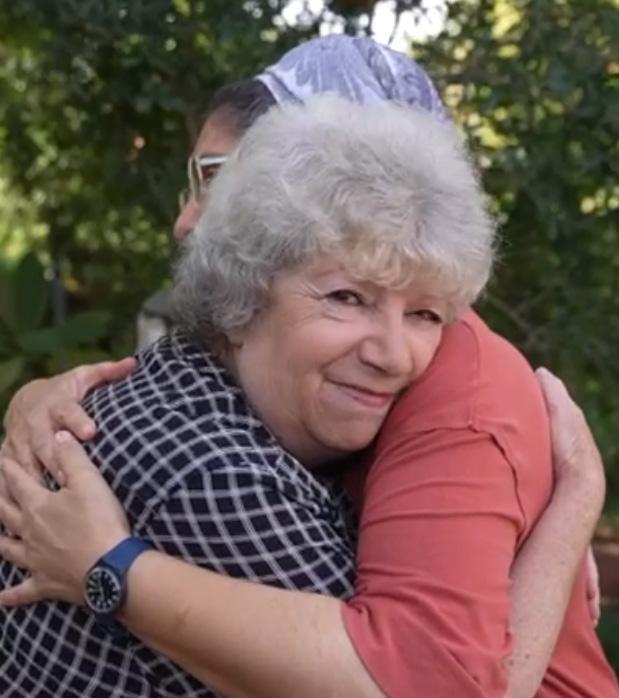


Yoni Glatt has published more than 1,000 crossword puzzles worldwide, from the LA Times and Boston Globe to The Jerusalem Post. He has also published two Jewish puzzle books: "Kosher Crosswords" and the sequel "More Kosher Crosswords and Word Games".


UIA THE ISRAEL YOU'VE ALWAYS BELIEVED IN BECAUSE WE'LL ALWAYS NEED IT Consider a gift to Israel in your Will through UIA For a confidential discussion, contact Michael on 9361 4273 or giftsinwills@uiansw org au 8 the sydney jewish report | Mar 2024 ANSWERS PAGE 19 How many common words of 5 or more letters can you spell using the letters in the hive? Every answer must use the centre letter at least once. Letters may be reused in a word. At least one word will use all 7 letters and have a direct Jewish connection. Proper names and hyphenated words are not allowed. Score 1 point for each answer and 3 points for a Jewish-related word that uses all 7 letters. Rating: 15
20
27 = Genius
= Good;
= Excellent;

SENIORS’ LIVING FEATURE
 Montefiore occupational therapist Kimberly Gadd
Montefiore occupational therapist Kimberly Gadd
JCA supported organisations provide essential care in the aged care sector
Like many other developed nations, Australia is witnessing a significant demographic shift, with an ageing population. As a result, the demand for quality aged care services to meet the evolving needs of our seniors has surged. This care includes both residential and in-home services.
JCA member organisations JewishCare, Montefiore, COA Sydney and The Burger Centre play a crucial role in enabling people to age safely in their homes with the necessary physical, emotional and social support. The approach promotes independence for those not ready or willing to move to residential care.
In terms of the impact, the numbers speak for themselves. Through JewishCare, 537 people received a home functional assessment, 250 people accessed social activities and 80 clients were linked with a volunteer to maintain regular social contact through its Links Program. In addition, JewishCare assisted 288 Holocaust survivors to receive financial restitution, enabling
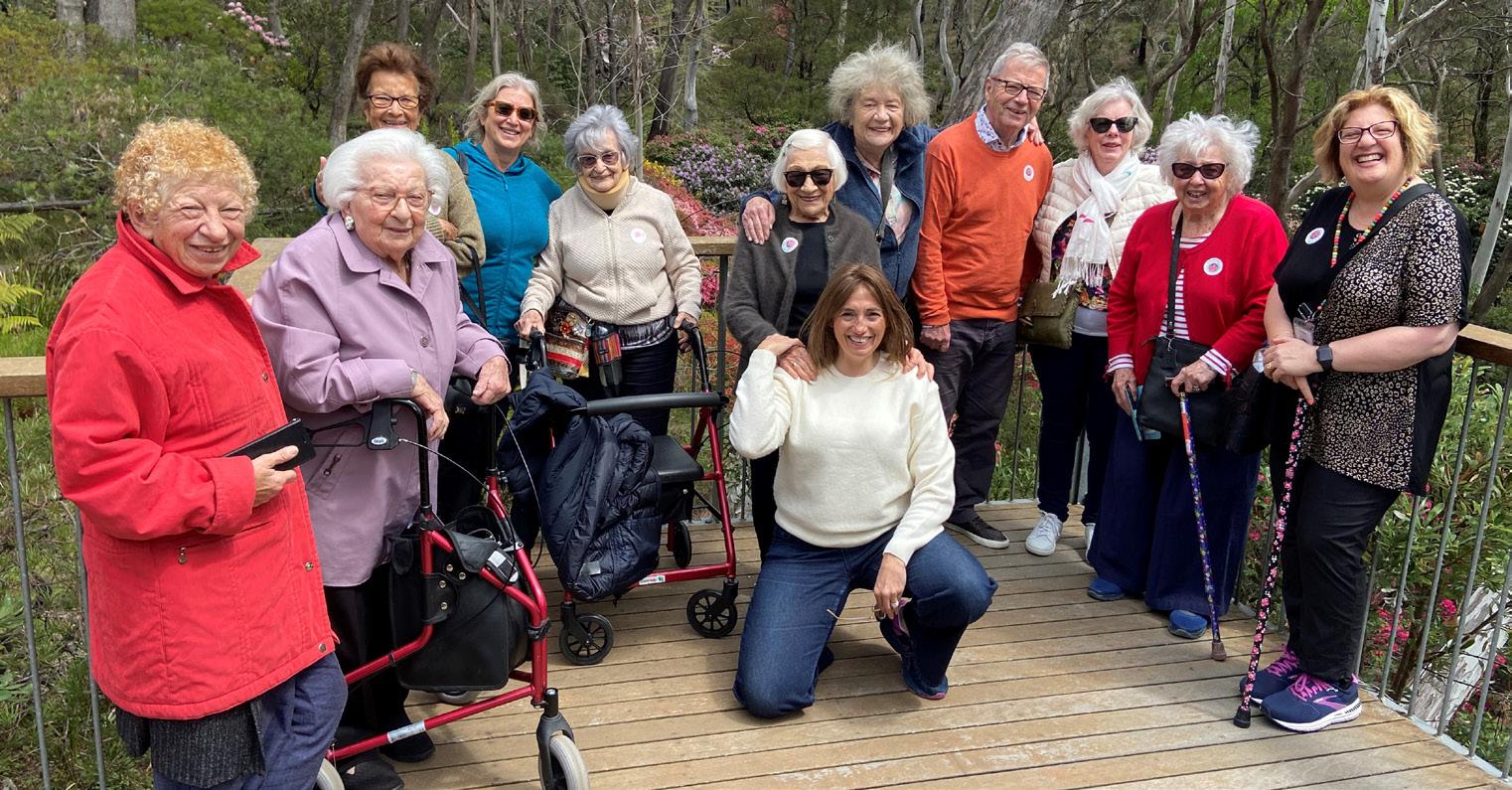
many to remain comfortably in their homes.
Montefiore’s “Help at Home” division provides daily services to hundreds of older people still living in their own homes. Montefiore provides the full range of aged care services, including in-home care, retirement living, residential aged care and, in partnership with JewishCare, programs and services for seniors via The Burger Centre.
Last year The Burger Centre had a huge impact. 380 people accessed its
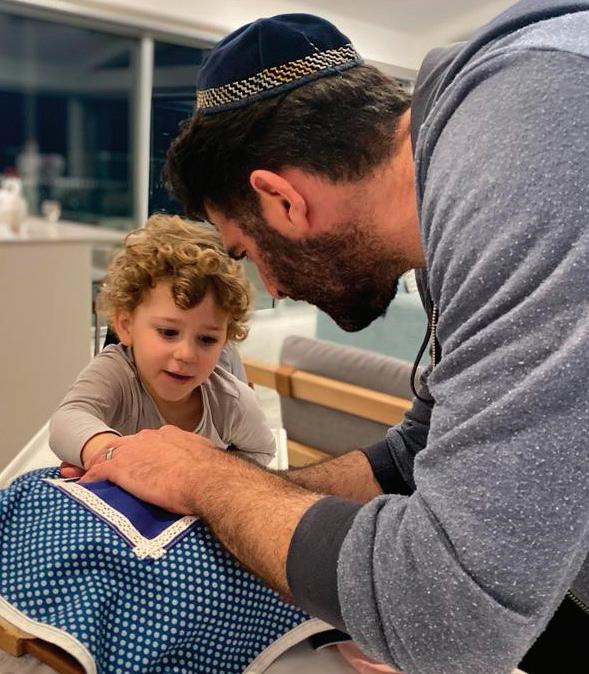
social activities program. One hundred and fifty attended outings and 16 participated in an overnight trip. Two hundred and twenty people received wellness assistance and 400 participated in festival and chag activities. A day at The Burger Centre includes a threecourse hot kosher lunch. Two hundred and 71 lunches were served every week last year. The Centre also provides respite care for family members and friends. In 2023, 60 people received respite while their loved ones were there.
In the residential aged care sector, Montefiore supports 170 subsidised residents (30 per cent of residents) thanks to donor funds. COA Sydney also contributes significantly towards ensuring that seniors receive kosher meals on wheels, with more than 160 volunteers donating 28,500 hours of their time a year, delivering meals, conversation and social interaction.
“These fundamental services could not be made available without the core support these organisations receive from JCA and our community through our annual campaign,” said JCA CEO Alain Hasson.
“Honouring and looking after our seniors is a key part of who we are and something we would never compromise on as a community. The funding required for this continues to rise significantly as the sector gets more regulated, but we are committed to supporting our organisations and people. I thank everyone who contributes to our campaigns and makes this possible.”
For more information on JCAsupported organisations and the impact they make in the community, head to
seniors’ living feature Generations 02 8353 1611 or email debbie@jca.org.au
JCA
A Burger Centre outing
No place like home
Through expert allied health care, Help at Home, by Montefiore’s occupational therapist Kimberly Gadd, empowers clients to maintain their independence.
With its focus on enhancing individuals' ability to engage in meaningful activities, prevent falls and improve mobility and function, occupational therapy (OT) plays a crucial role in helping older members of our community remain home independently for longer.
OT is just one of the service offerings from Help at Home by Montefiore, an in-home support service provided by Montefiore to care for recipients. Services are based on individual care plans and are tailored to each client, addressing their specific needs.
When Bernie Levine was first diagnosed with Parkinson’s, his family knew that they wanted to support him to continue to live at home, where he feels the most comfortable. They reached out to Help at Home, looking for additional guidance to help Bernie live independently and safely at home.
“My father’s mobility and stability are very challenging,” said daughter Jodi. “My parents would like to stay at home together for as long as possible and my mother cares for my dad. She is an unbelievably dedicated, sensitive and capable carer, but I wanted her to have some additional support, especially for when his condition is at its worst.”
Help at Home OT Kimberly Gadd spent time getting to know Bernie and his wife, Lucy. Her work with the family focuses on providing strategies for additional support when Bernie needs it most, allowing them to live more freely as a couple, with enjoyment and engagement.“My parents recently moved to a new apartment and I was concerned that the shower did not have stability rails. Fortunately, Kimberley was able to guide us every step of the way,” Jodi said. “Kimberley visited, provided guidance about general accommodation, assessed what was needed, contacted a contractor, submitted drawings and requirements, got finance approval and had the rails put in before they moved in. Everything was in place on the day they moved in.”
“A big part of what I do for families, like the Levine’s, is education on how Bernie’s condition affects him, what it might look like and how they can help him to maintain his independence by understanding what the issues might be,” Kimberly said.
“Equipment is part of it and skills development. We work to upskill both Bernie and his family by teaching them new or alternative ways of doing things.”
The support from Kimberly has been invaluable for the Levine family. Help at Home by Montefiore can change people’s ability to participate in the meaningful activities of everyday life.
To find out more, go to: https:// montefiore.org.au/help-at-home/
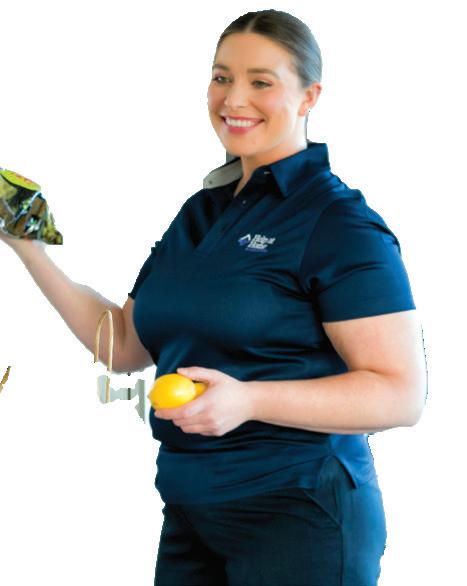
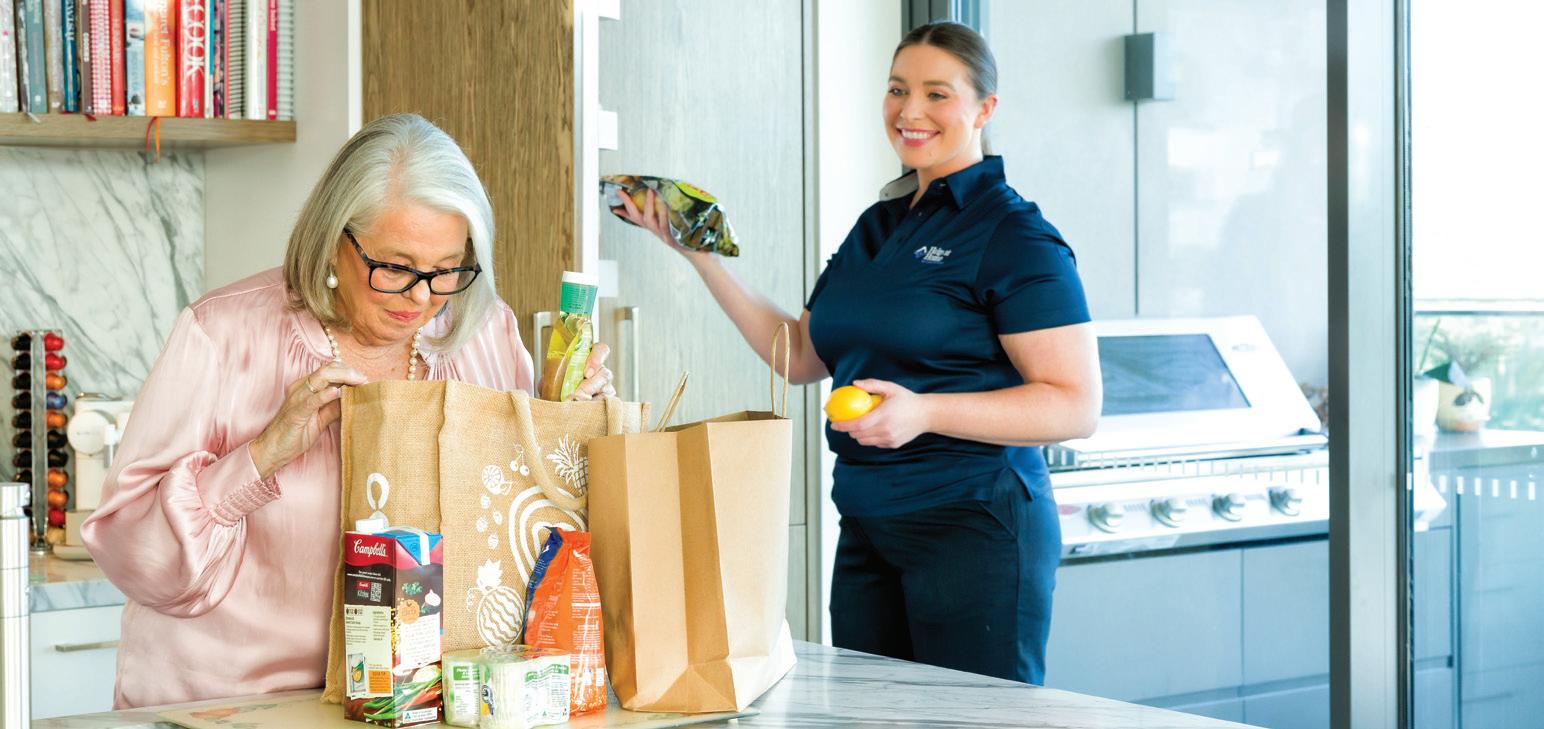
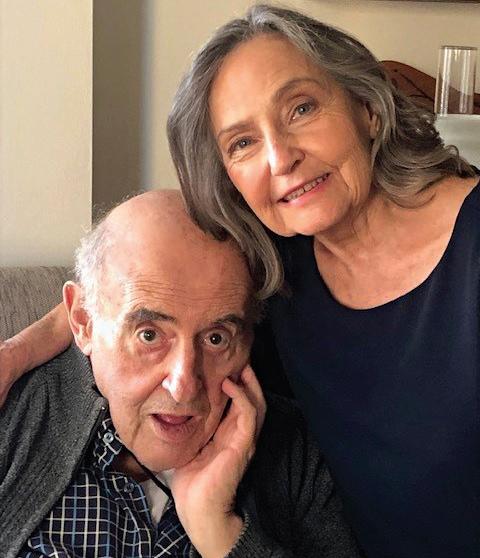


seniors’ living feature CONTACT US TODAY 1800 251 537 MONTEFIORE.ORG.AU 334 NEW SOUTH HEAD RD, DOUBLE BAY
you know that Help at Home by Montefiore provides personalised and flexible Home Care services that allow you to
to live independently at home? Help at Home by Montefiore is a trusted, industry-leading home care provider offering care packages for seniors, ranging from social & emotional support to domestic, clinical and allied health assistance. DOMESTIC SUPPORT NURSING ALLIED HEALTH SPECIALIST DEMENTIA CARE COMPANIONSHIP TRANSPORT Live with choice, dignity & wellbeing in your home or in one of our welcoming residential care facilities. as you RESIDENTIAL CARE Exceptional care, tailored to your needs. Discover living with real care at one of our welcoming Montefiore Residential Care campuses. Private ensuite rooms set in beautiful grounds, quality dining and wide-ranging activities, together with award-winning clinical & allied health services. Accommodation ranges from low-level care to high care needs & specialised dementia care. Leading aged care across Sydney: Randwick Woollahra Hunters Hill Living with real care SILVER SERVICE DINING NURSING & CLINICAL SUPPORT 360° ALLIED HEALTH CARE OUTSTANDING ACCOMODATION JEWISH CULTURE & TRADITION SPECIALIST DEMENTIA CARE 24 7 CONTACT US TODAY 1800 978 711 MONTEFIORE.ORG.AU RESIDENTIAL@MONTEFIORE.ORG.AU
Care your way Did
continue
MONTEFIORE
Bernie and Lucy Levine
Getting ready for a hip or knee replacement?
WOLPER JEWISH HOSPITAL
Joint replacement is major surgery. Consequently, it often involves rehabilitation following discharge from the surgical hospital. Currently some health funds are urging patients to undergo their post-surgical rehabilitation at home rather than in a specialised rehabilitation hospital.
Here’s why you should choose inpatient rehabilitation.
Wolper Jewish Hospital is a leader in rehabilitation and many of Sydney’s top orthopaedic surgeons recommend its services for their patients.
As an inpatient in Wolper’s rehabilitation unit, patients will receive comprehensive 24-hour care and support from nursing and other clinical staff. Pain management, wound care and personal care are all taken catered for, reducing the risk of complications and leaving the patient free to focus entirely on their recovery. If a complication does occur, care is on-hand immediately.
Wolper’s team of rehabilitation physicians, physiotherapists, nursing staff, occupational therapists and other allied health staff, including dietitians and a pharmacist, take a collaborative approach to provide a personalised treatment plan for each patient. The specialised rehabilitation gym is fully equipped to help patients to reach their rehabilitation goals. Wolper is also home to one of Sydney’s largest hydrotherapy pools.
Wolper staff members are always on hand, providing a safe, secure and comfortable environment for patients as they undergo their treatment. The rehabilitation team keeps patients motivated and focussed on their recovery – something that can be tough to do when they are isolated at home. Being surrounded by the rehab team, as well as fellow patients who have experienced similar surgeries, provides a social and supportive environment that is so important for overall wellbeing.
Some may have heard that it can be difficult to get into Wolper Jewish Hospital. It is likely that this is not the case.
Before surgery people wanting to undergo rehabilitation at Wolper should take the following steps:
• Contact their health fund and confirm they are covered for inpatient rehabilitation at Wolper Jewish Hospital;
• Contact Wolper’s Rehabilitation Services Manager to discuss the date of surgery;
• At pre-admission, or on the day of surgery, let the surgical hospital and the surgeon know that arrangements have been made with Wolper; and
• If the patient is advised following surgery that there are no beds available at Wolper, this should be confirmed with Wolper directly.
Marcelle Segal is the Rehabilitation Services Manager at Wolper and will coordinate patient admission to the hospital’s rehabilitation unit.
Marcelle can be contacted on 83242221 or by email: marcellesegal@wolper.

Reach your health goals with Wolper
Whether your resolution for 2024 is to get more out of life by improving your fitness, or you are recovering from surgery, illness or injury, Wolper Jewish Hospital has a class that can help you achieve your goals.
MOVEWELL GYM CLASSES
A range of classes focusing on strength and conditioning, falls prevention, core stability and spinal health. We also offer specialised Parkinson’s Disease classes. 33 classes offered 5 days a week, running from 7:30am to 5pm.
MOVEWELL AQUA CLASSES
Minimises the impact on the joints while exercising, allowing increased body strength with improved flexibility and function. Available at both Wolper and Beresford Hall in Rose Bay. 28 classes offered 5 days a week and Saturday mornings.
PRIVATE SERVICES
Private appointments are available with Wolper’s physiotherapists and exercise physiologists who are highly trained in treating a wide variety of conditions from injury, post-surgical recovery, illness or concerns related to ageing such as falls prevention.
seniors’ living feature for clinical excellence

P�Aqua classes in two locations
P�Onsite parking and café
P� All welcome - previous Wolper admission not required
FOR INFORMATION & BOOKINGS CALL 8324 2296 SEE wolper.com.au/movewell EMAIL movewell@wolper.com.au
Inpatient rehabilitation at Wolper Jewish Hospital
seniors’ living feature
Helping you stay independent at home
Every Thursday morning, Ruth prepares for a busy day. Amidst her responsibilities, one constant brings her peace of mind: the respite service from JewishCare. Every week, she watches as David, her husband, readies himself for the synagogue, accompanied by his dedicated support worker.
It's a heart-warming sight, one that speaks volumes about the impact of these services.
For Ruth, JewishCare is more than a helping hand; it's a vital support that allows her to balance her own life while knowing David is not just cared for, but also connected to their community and faith. This picture perfectly reflects JewishCare’s mission – a blend of care, compassion and community, enhancing the lives of seniors and their families.
For those seeking support with personal care, domestic tasks, transportation or connections to allied health services, considering a home care package could be an ideal next step. As an accredited provider of Consumer Directed Care packages, JewishCare can provide support catering to needs ranging from basic to high-level. Beyond services provided through a home care package, JewishCare has a dedicated team of social workers to help with navigating complex issues and provides access to external support you or your family may need. It also offers a robust network of community clubs and volunteer support to provide social ties and keep you connected to the things you love doing most. JewishCare ensures that only the most experienced and qualified staff
support you at home, each receiving regular training and personal development to uphold the highest standard of care. Many of its staff are fluent in Russian and Hebrew, and all are sensitive to your cultural and traditional needs and values. The organisation’s approach is collaborative. It works closely with you and your family, ensuring a personalised care plan that enables you to live as independently as possible. Regular contact and personal home visits by case managers are a testament to JewishCare’s commitment to your well-being.
Its clients' experiences speak volumes about our impact:
“I am incredibly thankful for the support I have received from JewishCare over the past eight years," said long-term client Maria. "My Care Manager, Irina Stepanova, has been there for everything I need, regardless of the time or issue. My support workers have been invaluable in assisting me with shopping, transport and cooking.”
From another client, Anna, “As I can’t go out by myself, I am so appreciative of JewishCare’s staff who help me to appointments, especially the Russianspeaking worker who takes me to the beach or the park each week. That is so important to me.”
JewishCare is more than a service. It is a community, a family dedicated to nurturing the independence and well-being of its clients.
If you or a family member needs support, please contact JewishCare on 1300 133 660 or email hello@jewishcare.com.au. You can learn more about all services at https:// jewishcare.com.au/

Every day brings new adventures and lasting friendships
At 95 years, Estelle Stone's zest for life is as vibrant as that of a much younger woman. Despite navigating life in a wheelchair, Estelle has an indomitable spirit, driven by a desire to dance and discover, much like in her younger days. For seniors like Estelle, the Burger Centre is more than a social hub; it's a source of joy and a bridge to meaningful connections. Her journey here, recommended by a JewishCare social worker, unfolds every Thursday amid laughter, friendships and the inviting aroma of shared kosher lunches.
Now a resident at Montefiore, her Thursdays still resonate with the warmth of the Burger Centre. "I feel part of something beautiful," Estelle said. She encapsulated the essence of the Centre – a welcoming community that embraces each individual, providing support and affection in their golden years.
Following his wife's passing, Vladimir Gelman, also found refuge in the Burger Centre.. Initially hesitant, he discovered a sense of belonging within the English-speaking Thursday group. There, conversations with South African expatriates and others were transformative. The Centre's outings and discussions rekindled his adventurous spirit and turned strangers into friends.
The pandemic brought isolation, but the Burger Centre's care was maintained. Marina Gomberg's reassuring phone calls, often in Vlad's native Russian, bridged the loneliness. As doors reopened post-

pandemic, he returned to a familiar embrace, by then a cherished member of the community. He found a new purpose in supporting his friend Stephen, who battles dementia, through shared games and moments of joy. Post-pandemic, the Centre itself was embarking on a new chapter. The recent merger with COA has expanded its patronage. An increased demand for services and adventures has seen the introduction of a wider range of daily programs and outings. Trips to museums, galleries, zoos, libraries, parks and beaches are just some of the activities on offer.
They only serve to add to the already established and diverse daily programs at Randwick and Hunters Hill. These include dance, Tai Chi, arts and crafts and music therapy. They highlight the Centre's longstanding commitment to providing a wide variety of enriching experiences for its members, complemented by regular outings and special overnight trips.
The Centre’s recent overnighter to The Blue Mountains was a huge success. From an artistic exploration of the Norman Lindsay Gallery to a luxurious stay at the Fairmont Resort, the experience blended relaxation
and discovery. The trip's highlights included visits to the Rhododendron Gardens and the Bygone Beauties in Leura. Estelle's and Vlad's stories, which encompass newfound connections, are just a glimpse into the many experiences to be had at the Burger Centre. This special place, constantly evolving and expanding, is more than a haven for seniors; it's a vibrant community where every day is an opportunity for adventure, learning, and heartfelt interactions.
To find out more, go to https://www. burgercentre.com.au
JEWISHCARE
BURGER CENTRE
JewishCare client David attending the synagogue with his care worker
Tamara Tofler gardening at the Burger Centre
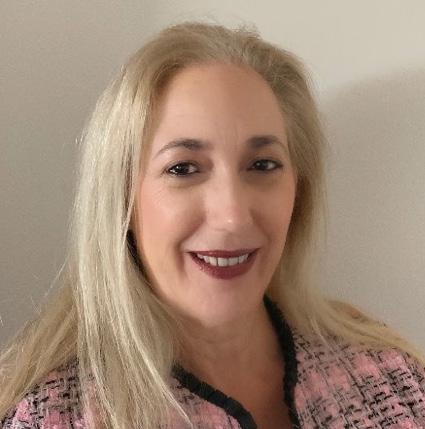
Walt Disney once said: "Growing old is mandatory, growing up is optional". How we view getting older and how we cope with ageing depends upon the individual.
Take a moment to consider what ageing means for you. Alicia Arbaje, a geriatric medicine physician at John Hopkins University, said that feeling old can hit at any age. It is perhaps the reason that some people can feel old in mid-life and others still consider themselves relatively spritely in traditional old age.
One of my GP colleagues recently said that one of the reasons nonagenarians have falls is because in their minds they are still teenagers. In recent years, it has also been more common to make statements like “60 is the new 40”.
As the ageing process is both physical and mental, we need to have a strategy to cope with changing life circumstances that are inevitable.
Rather than focusing on what was and what you were able to or used to do, it is more helpful to embrace life in a new way. For an older person that is retired or an empty nester, there is now time and

freedom to pursue interests that were not possible when working full-time or being a full-time parent to dependent children.
It can be frightening or stressful when considering your mortality. It is therefore important to share how you feel. Rather than sliding into melancholia or depression, talk to family, friends or a psychologist. In order not to bottle up these thoughts and feelings, it can be helpful to keep a journal.
You can help to maintain cognitive function by learning new skills, while equally important is keeping our bodies moving through some form of regular exercise. So, this is all about maximising our mental and physical wellbeing for as long as we can.
Still, we also need to accept that we are ageing and that this may come with limitations, a change in health status and a loss of independence. As Western culture reveres youth, becoming an
older person can be a scary prospect and many older people report that they feel invisible.
Maintaining the best possible health may also include a change in attitude to the following:
1. More frequent appointments with medical practitioners and undertaking tests that were not required previously;
2. A change in diet, including the timing of meals;
3. Wearing more suitable footwear. For some women, it is a huge step to give up heels;
4. Using a walking aid if stability becomes an issue;
5. Recognising that you are no longer safe to drive;
6. Accepting help for tasks and household chores; and
7. Learning to do things at a slower pace and not overextend yourself.
The final words on ageing go to Scottish comedian, Billy Connolly: "I think age is terribly overrated. You're okay, as long as you don't grow up. By all means grow old, but don't mature. Remain childlike, retain wonder, the ability to be flabbergasted by something".
Anne-Marie Elias is a psychologist in clinical practice for 25 years.
the material in the papers. By reading the papers, you acknowledge that we are not responsible for, and accept no liability in relation to, any reader’s use of, access to or conduct in connection with the papers in any circumstance. Photographs submitted by individuals or organisations are assumed to be their property and are therefore not otherwise credited. All articles in this paper have received the expressed consent of the author to publish in this paper.
The Jewish Report; ISSN 2204-4639
Publisher: The Jewish Report Pty Ltd (ACN 167302981)
Distributor: TJR Distribution Pty Ltd ACN 165158029
Comments or suggestions to: editor@thejewishreport.com.au
Article submissions to: www.thejewishreport.com.au/article-submission-guidelines
Advertising: editor@thejewishreport.com.au
Website: www.thejewishreport.com.au
Printer: Spotpress Pty Ltd
Understanding ageing
ELIAS AROUND THE COMMUNITY The only Jewish Burial Society in NSW - Since 1817 Funeral Enquiries & Arrangements C all 9363 2248 Cremations are strictly prohibited under Jewish law. The Sydney Chevra Kadisha alone provides services according to Jewish tradition and Halacha. Cnr. Oxford & Wallis Streets, Woollahra Email: info@sck.org.au Website: www.sck.org.au seniors’ living feature CANDLE LIGHTING TIMES Friday, Mar 15, 2024 6:55 pm Shabbat ends, Mar 16, 2024 7:49 pm Friday, Mar 22, 2024 6:46 pm Shabbat ends, Mar 23, 2024 7:39 pm Friday, Mar 29, 2024 6:36 pm Shabbat ends, Mar 30, 2024 7:30 pm Sydney Jewish Report Disclaimer: Except where expressly stated otherwise, content in The Sydney Jewish Report is provided as general informations only. The articles in this paper have been contributed by a third party. The opinions, facts and any media content here are presented solely by the author, and The Jewish Report assumes no responsibility for them. It is not intended as advice and must not be relied upon as such. You should make your own inquiries and take independent advice tailored to your specific circumstances prior to making any decisions. We do not make any representation or warranty that any material in the papers will be reliable, accurate or complete, nor do we accept any responsibility arising in any way from errors or omissions. We will not be liable for loss resulting from any action or decision by you in reliance on
ANNE-MARIE
Paul Margolis is a New York City-based photographer and writer who has documented Israel and the Jewish world for many years.
His projects have included reporting on Jewish poverty in New York, as well as the small Jewish communities of Cuba and Ireland.
His work has appeared in Jewish publications in the U.S. and Israel.
He travels to Israel regularly to photograph everyday life in the country.
Manhattan, USA post October 7
While Paul has accepted digital photography, his preferred medium is black and white film, shots taken on his Leica rangefinder cameras, which he processes and prints himself.
Paul was in Israel when the war broke out on October 7. He photographed reservists being mobilised and the distribution centres that were organising supplies for communities in the South.
Here The Jewish Report presents a selection of images Paul took in Manhattan between October 2023 and last month.
To see more of his work, go to: www. paulmargolis.com
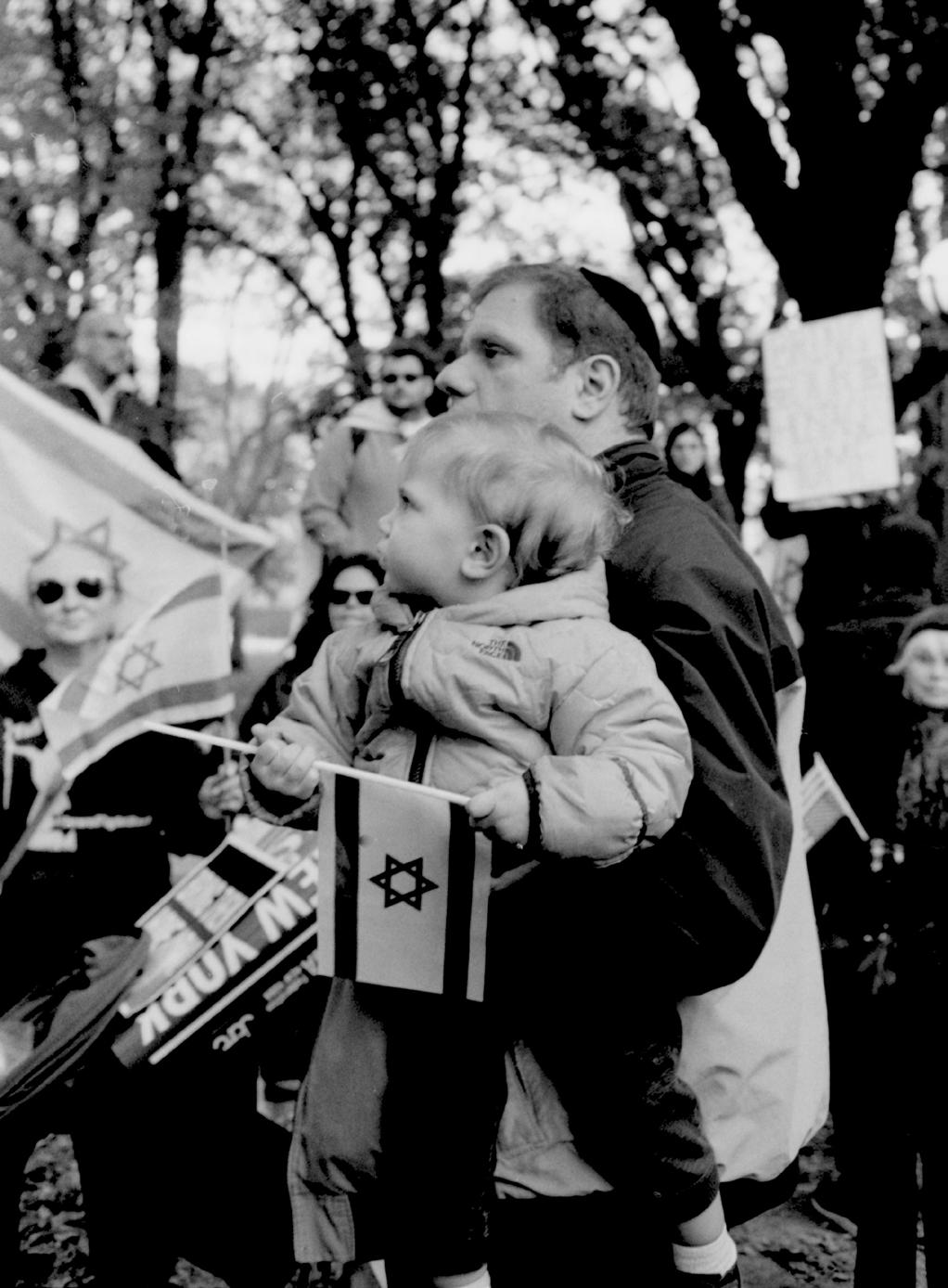

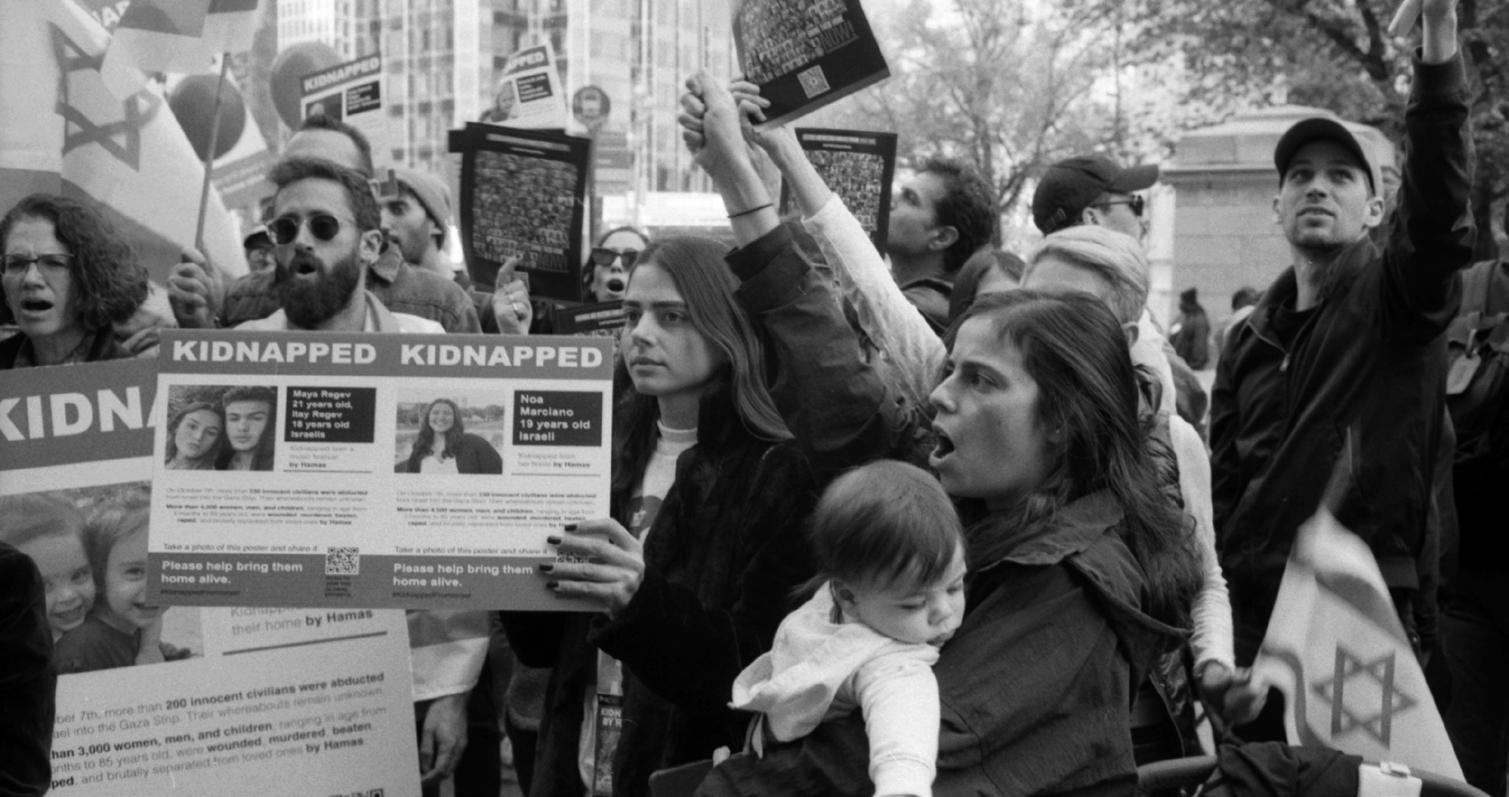
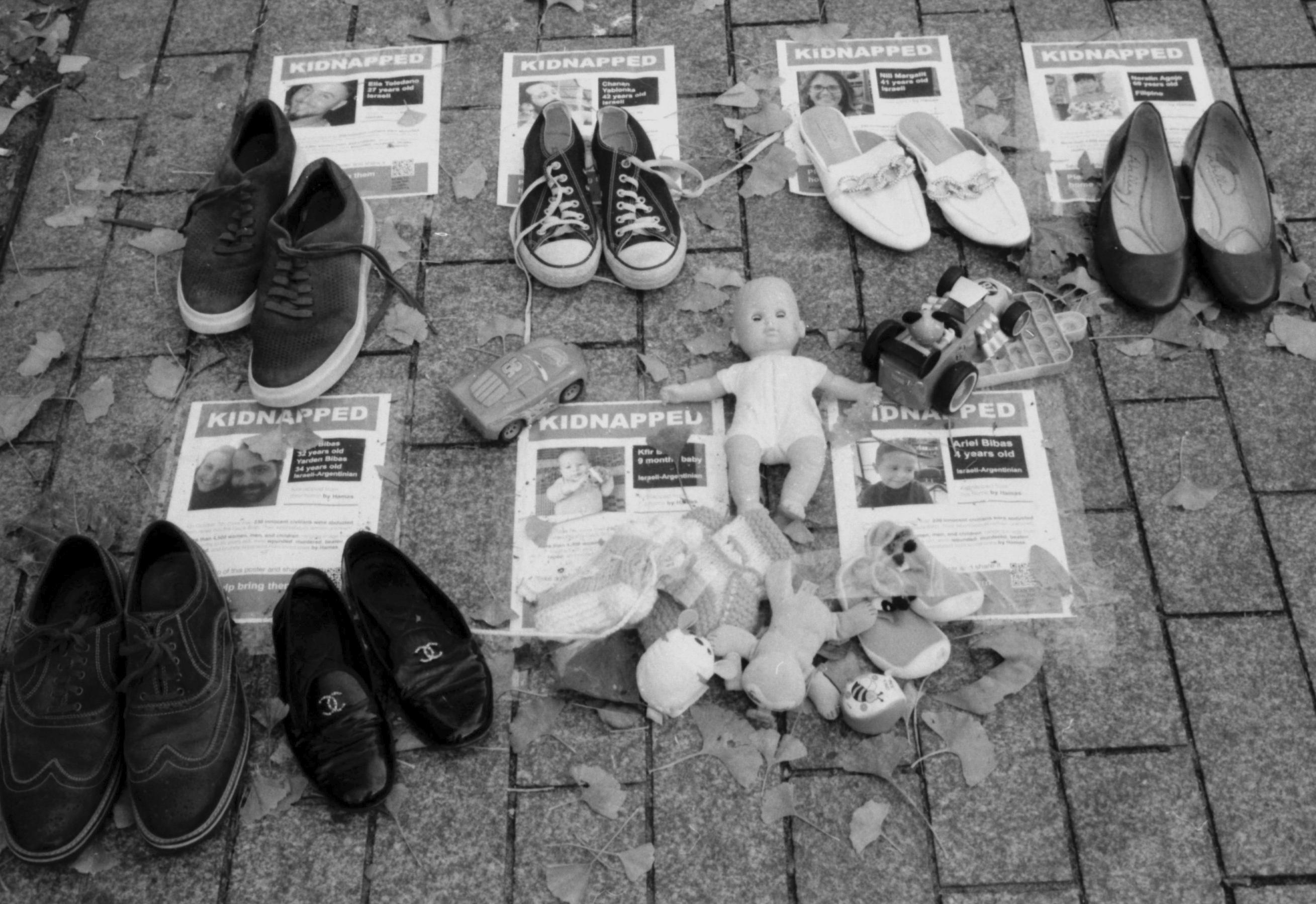
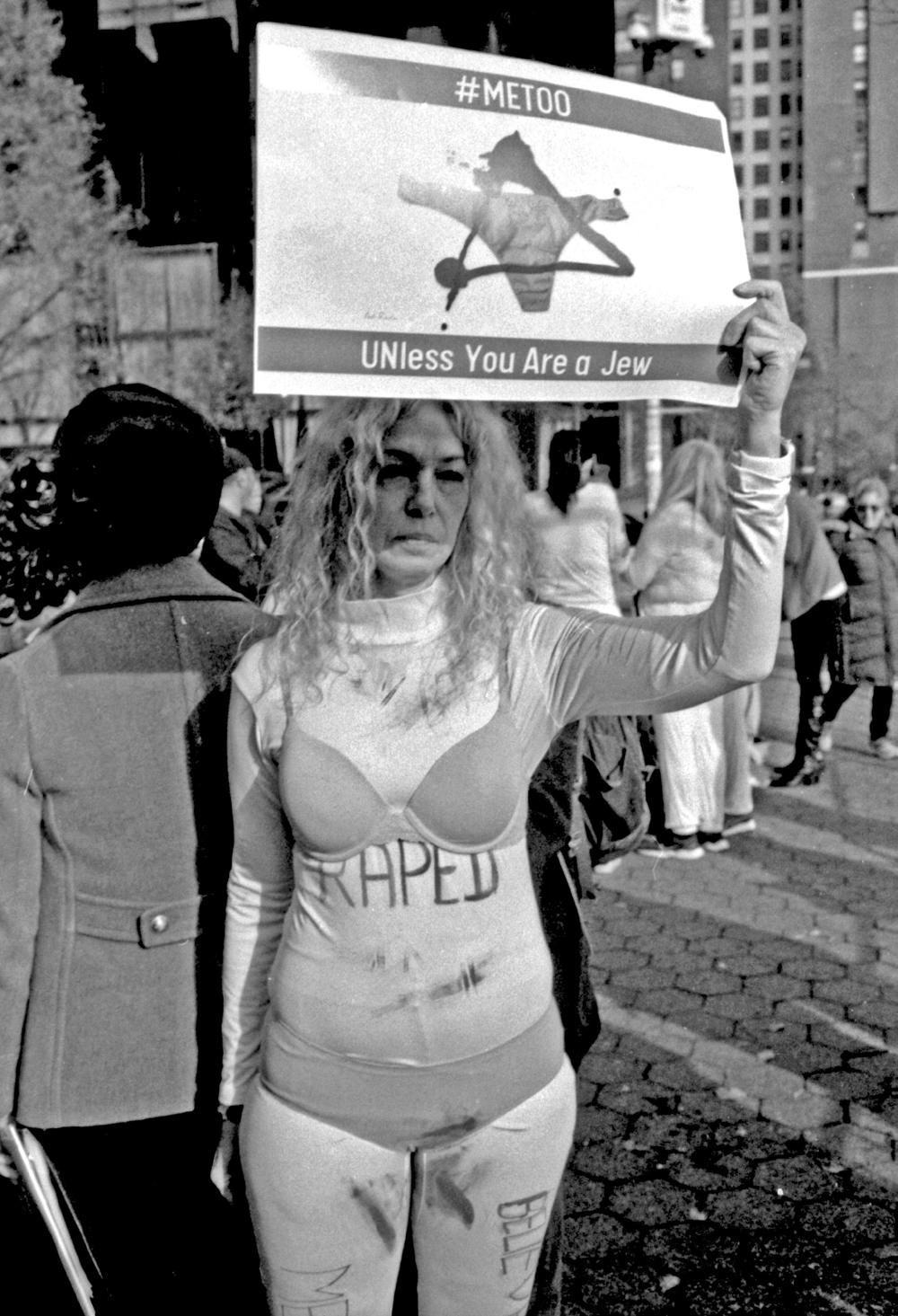
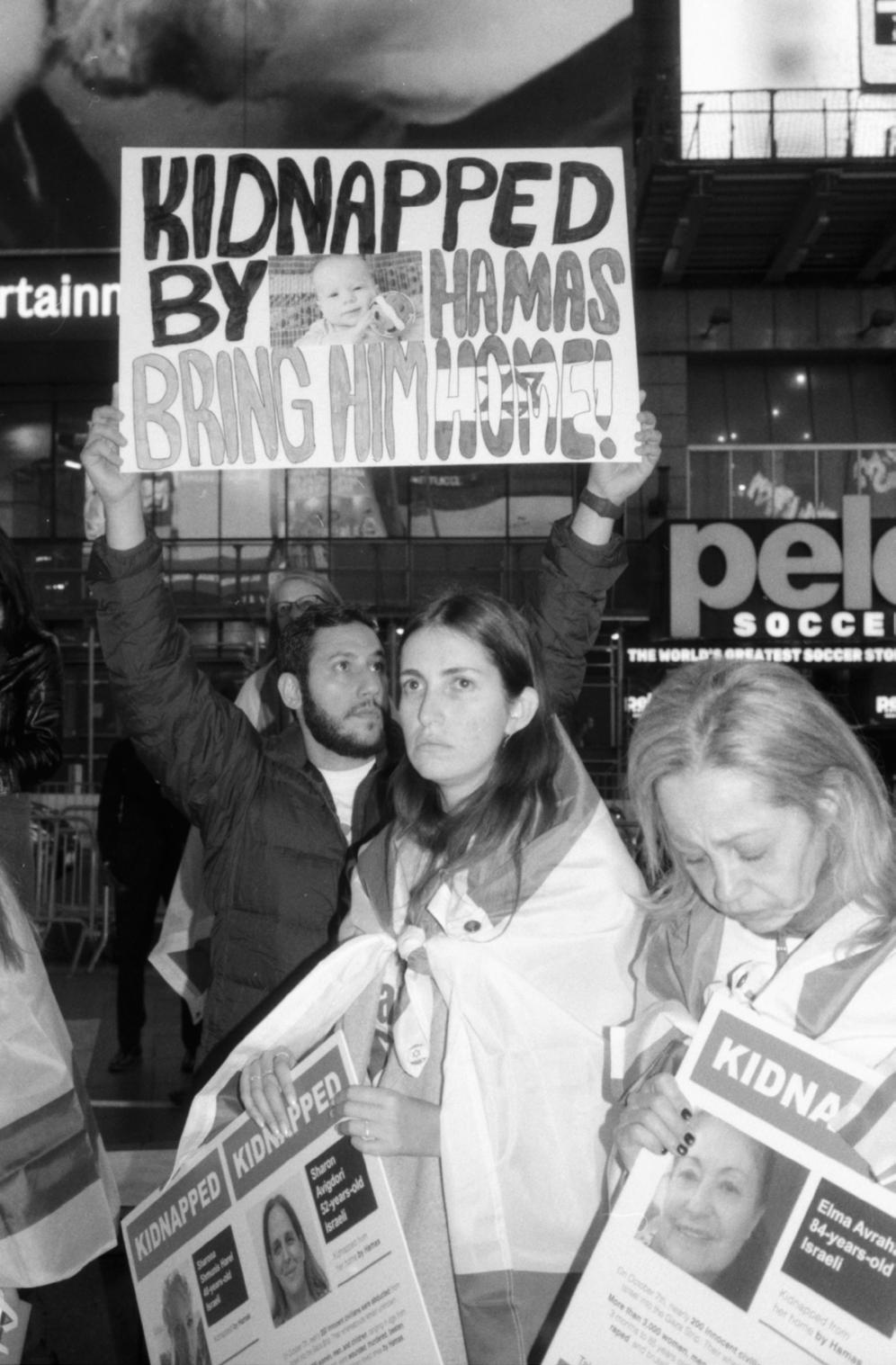 Rally for the hostages during the New York City Marathon
A father and son at a hostage rally in midtown
An evocative display at 66th Street and Broadway
Rally for the hostages during the New York City Marathon
A father and son at a hostage rally in midtown
An evocative display at 66th Street and Broadway
INTERNATIONAL
PAUL MARGOLIS
JEWISH NEWS
A demonstrator at a free the hostages rally in midtown on a chilly November day
A demonstrator standing in front of the United Nations building, protesting the abuse of women
15 the sydney jewish report | Mar 2024
A demonstration in Times Square
RABBINIC THOUGHT
RABBI DR BENJI LEVY
The German philosopher Friedrich Nietzsche famously declared that God is dead and we have killed Him. Made redundant by science and humanism, Nietzsche believed that God was no longer necessary to provide people with meaning. Nietzsche’s perception stands in direct contradiction to our profound sense of faith, but adapting the notion of “killing God” can in fact reveal a new depth to the Purim story.
A famous element that sets the Book of Esther apart from other biblical texts is the glaring omission of God’s name. The Megilla is scrupulous in naming every character that played an important role, so why not mention God? Perhaps the author of the Megilla deliberately left God out of the narrative to allow us to kill a perception of God and make room for a new one.
When God offered the Torah to the Jewish people, they famously declared (Exodus 24:7) na’aseh v’nishma (we will do and we will listen). The Talmud (Yevamot 46b; Keritot 9a) explains that through this experience the Jewish people converted en masse and emerged like newborn children (Yevamot 62a). This label that the Talmud gives to those that accepted the Torah as children is supported by their seemingly blind trust in their parents without knowing all the details. Centuries later, however, we are taught that the
Killing our perception of God this Purim
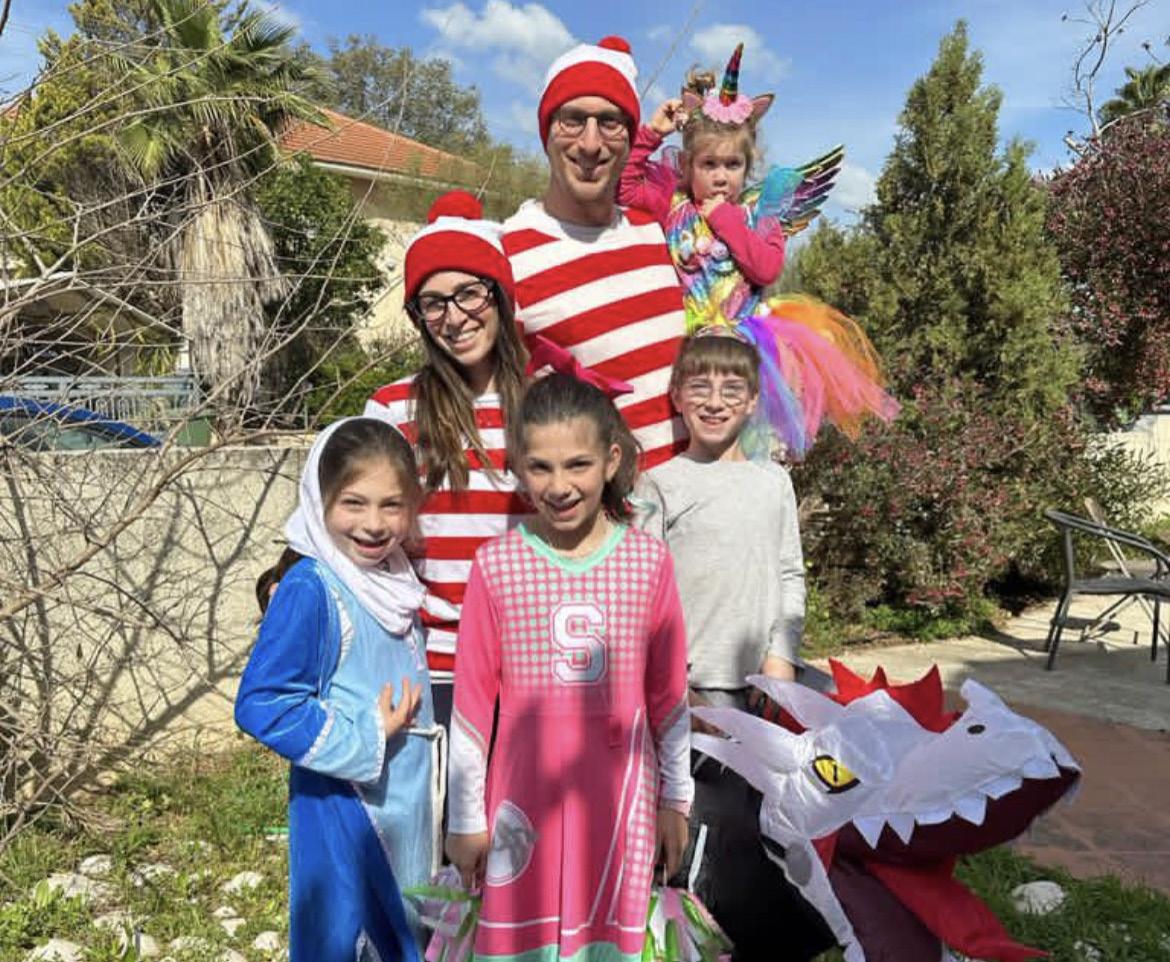
Jews re-received the Torah at Purim time from a new perspective (Shabbat 88a). In what way?
The Rosh Hashana prayers famously centres around the coronation of The King. This title, “The King”, is used in reference to God in many other places, leading the sages to claim that when the term “The King” is mentioned in the Megilla, it is also referring to God. Perhaps it was through “killing” this infantile view
How to measure time
RABBI DAVID FREEDMAN
At this time of year, our synagogue services are embellished by four additional readings from the Torah, known as the Arba’ah Parshiyot, The Four Portions. One relates to the giving of a half-shekel to maintain the Temple-ofold. The next is dedicated to recounting the story of an ancient enemy of the Israelites, the ancestors of Haman, whose hatred of Jews led to Purim.
The third portion describes the Temple purification rituals that allowed the people to prepare for Pesach. The fourth recounts the laws of Passover and is known as Parashat Hachodesh – the portion of the month.
This final passage opens with the following words: “This month is to be for you the first month of the year” (Exodus 12:2). On the surface, there does not seem to be an obvious connection between the laws of Pesach and this verse, which simply advises that the Jewish year begins with the month in which Pesach occurred.
Yet our sages felt the need to explain the connection. In his commentary on this verse, the famous 15th century Italian rabbi Ovadia Sforno explains that, as slaves, the Jewish People had not been masters of their own time. Yet, once all were freed, the first law given to
of God and burying His explicit name through the use of HaMelech that allowed us to receive the Torah anew.
Children can have an immature outlook on their parents and teachers, and often view God as a parental figure in a simplistic way. As we grow older, our understanding of the world and how it works becomes more sophisticated. At the same time, however, we often retain a less complex view of God, as

them was to establish a calendar. Time no longer ruled them. From that moment on, they could control their own destiny and could organise how best to utilise their time.
As we celebrate Pesach again in the coming weeks, we would do well to consider how we spend our time, whether we control it, or it control us? We have a diary to ensure that time is under our control … so that we can make time for all the important things in life. It was Albert Einstein who once said
we don’t always challenge ourselves to examine this area of our lives. While transitions between life stages can be a slow process, childhood must end for full adulthood to be born, and so to truly grow we must also fundamentally alter our preconceived notions of God. As we develop, we must delve into more facets of the Creator with greater depth. What one learns of God as a five-yearold is but one dimension and if God remains one-dimensional, so does one’s approach.
An element of Purim is about moving beyond the God of our collective childhood, allowing us to realise that God is the King, who is distant and distinct, but at the same time approachable and present. The latter needs to be uncovered, in the same way that any relationship requires work. This realisation is what enabled the Jewish people to “re-receive” the Torah as the Talmud outlines and compels us to always deepen our relationship, seeking out God beyond His basic name each year through Purim.
As we mature over time, we need to challenge our earlier perceptions and re-examine the world and our notions of God in more sophisticated and nuanced ways. Killing God is not the answer, but killing our perceptions of Him is part of the process we need to take in improving our relationships and gaining a more profound perspective.
that the only reason for ‘time’ is so that everything doesn’t happen at once. In this same spirit, Rabbi Lord Sacks wrote, “Make space in your life for the things that matter, for without this you will wonder where your life went.
In Judaism we have the Sabbath, a dedicated day of stillness each week, where we make space for all the things that are important, but not urgent. Not every culture has a Sabbath, but life without dedicated time for renewal, like a life without exercise or music or
a sense of humour, is a lesser life.” One final thought based on an article titled ‘Time and Meaning: Each Second, Each Moment’, by Rabbi Eliyahu Safran, indicates the calendar that we were told to construct was to be based on the orbit of the moon around the earth. Its cycle of twenty-nine and a half days, which led to the invention of the month, is filled with light and dark, brightness and shadow, full moon and new moon, and a fair amount in between.
Apparently, this system of measuring time brought its own special message. Unlike most other nations of the world, who use a solar calendar, Jews rely on the phases of the moon to regulate the months and the seasons.
The Hasidic master known as the Sfat Emet, Rabbi Yehudah Aryeh Leib Alter, suggested that this is because the nations of the world can only function and exist when the sun shines and conditions are favourable to them.
When the sun sets, so do their empires. We, on the other hand, continue to thrive even on moonless nights, as it waxes and wanes. We continue to shine, even on the darkest of days, just as the moon can exist even during the blackest night.
Our history is filled with dark moments. Now is one of them. Yet our calendar reminds us that this, too, will pass and the light that comes with joy and happiness will return and illuminate all our lives again.
16 the sydney jewish report | Mar 2024
Rabbi Benji and his wife Renana with their children celebrating Purim
RABBINIC THOUGHT
RABBI MOSHE D. GUTNICK RABBINIC ADMINISTRATOR THE KASHRUT AUTHORITY
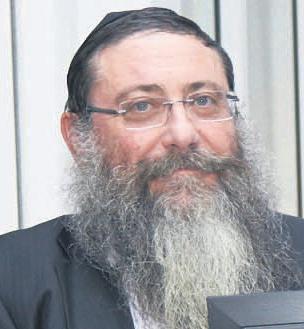
In relation to the laws of reading the Purim megillah, the Mishnah states, “he who reads the megillah backwards does not fulfil the mitzvah”. At first glance, we understand that every chapter must be read in consecutive order, rather than in reverse.
This contrasts with the weekly Torah reading, where one fulfills the mitzvah even if one hears the latter part before the former.
Why have these specific instructions been given? The commentaries explain that since the Purim miracle is directly connected to the Divine Providence of the exact timing of each occurrence, the megillah must be read in that specific order.
Timing. Esther was appointed queen, then her cousin Mordechai overheard the plot to kill the king, which he conveyed to his sovereign, who was subsequently unable to sleep.
All this then led to the rewarding of Mordechai, on the very same night Haman sought permission from the monarch to hang him! Each event took place in precisely the right order to bring salvation to the Jewish people.
Purim 5784

The Holy Baal Shem Tov gives a different interpretation to the Mishna. To him reading the megillah backwards, or ‘lemafraya’ in Hebrew, means it would be read as if it was merely a historical incident of note without any relevance to today.
The events within the megillah must be experienced in the here and now as if they are unfolding in the present day. These include the mistake of the Jewish people celebrating at King Achashverosh’s party, Haman’s wicked plan, our dependence on Hashem, Mordechai’s refusal to bow down to Haman, Esther’s bravery and the sudden
total defeat of Haman and more. These are all incidents that we must learn from and must lead us to living our lives in a more meaningful and different way.
In each generation there are the challenges of antisemitism. There is a ‘Haman’ – or more than one. Yet, we must emulate the actions of Mordechai and Esther, never bowing our heads, even in the worst circumstances.
Achashverosh was the leader of the world in his epoch. Yet, the Talmud doesn’t categorically assess his character. One opinion was that he was wise. The other was that he was not entirely of sound mind. The parallel to our times is
difficult to ignore. Hamas is the collective Haman of today. It seeks to destroy every Jewish man, woman and child. Antisemites in the wider world have latched on to their mission and cause.
The megillah describes Esther’s plea to her uncle Mordechai before her entering the King’s chamber to beg on behalf of her people. Every Jew of that era united as one in prayer to Hashem. Twenty-two thousand children gathered with Mordechai and when Haman threatened them, their collective response was that they were with Mordechai in life or death.
Unity. Have we ever seen such a solid and purposeful display since October 7? Jews who are Sephardi, Ashkenazi, Mizrachi, Charedi and Chiloni all united to face the common enemy. All with the same cry, as expressed in the popular and soulful song by Ayal Golan, “the Eternal people does not fear Because G-d protects us ... Am Yisrael Chai’, which has subsequently become an international anthem for this time.
Every member of the Israeli Defense Forces is our Mordechai and Esther. With the State of Israel, its government and the entire Jewish world behind them. Purim is not merely an event from the past. It is happening before our very eyes. In real time.
Am Yisrael Chai.

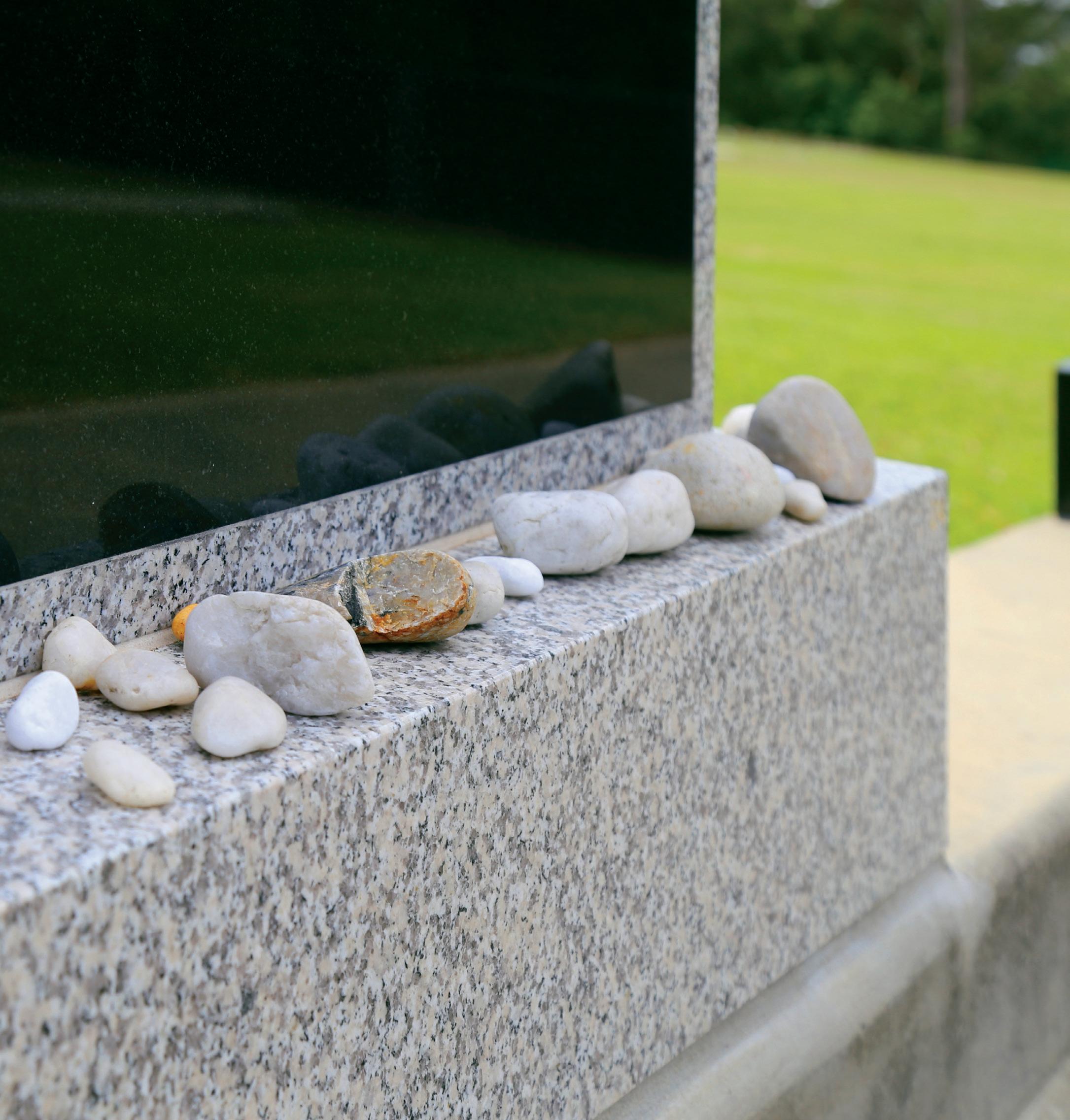
17 the sydney jewish report | Mar 2024
CONSIDERED OPINION
DR YVETTE ALT MILLER COURTESY: AISH.COM
There is a wealth of meaning behind some common Jewish words. Here are the origins and deeper meanings behind nine of them.
Kvell
Kvell is to swell up with pride, usually for one’s kids. This modern usage comes from the Yiddish word kveln, meaning to be delighted. Kveln entered Yiddish from German centuries ago: the Middle High German word quellen meant to gush up, to well, or to swell.
Amen
Amen comes from the Hebrew word emunah, meaning belief, faith, credible, authentic and true. The Talmud (Shavuot 36a) relates the two words; when we hear someone recite a blessing, saying Amen indicates that we too accept these words as true.
Amen also has a deeper meaning: it is an acronym for the Hebrew phrase El Melech Ne’eman, which means “God, Faithful King”. Thus, Amen also functions as a declaration in its own right, expressing our belief in the Divine.
Mensch
These days, a mensch is a person of strength and honour. It comes from the Yiddish (and, before that, from the German) mensch, which literally means a man or a person. (This in turn came from Old High German mennisco, meaning human, which came from Proto-German manniska, describing someone as human.)
Yiddish went beyond the literal meaning of a person, however. Reflecting Jewish values, a mensch is a person in full, someone who fulfills his or her obligations and does what is right.
Kosher
Kosher literally means fit, proper and appropriate. The term “Kosher” can be applied to a range of items that are governed by Jewish law. Torah scrolls and mezuzahs are “kosher” when they are correctly written and maintained. Legal contracts and documents are “kosher” when they are appropriately designed and carried out, in accordance with Jewish law. Kosher food is that which the Torah permits for consumption by Jewish people.
The rules of kosher food are found in the Bible in the books of Leviticus and Deuteronomy, and are expanded on in the Talmud. By observing these rules, Jews are able to bring holiness into all areas of their lives each time they cook and eat.
Mutterings
Deeper meaning of common Jewish words

Nachas
Nachas is the pride and joy we get from our children. A common Jewish sentiment is “may you have nachas from your children”.
Nachas comes from the Hebrew word nachat, meaning satisfaction and pleasure. (That in turn derives from the Hebrew lanuach, meaning to rest.) To derive nachas is also expressed in the Yiddish phrase to shep nachas. Shep comes from the Yiddish shepn, meaning scoop.
Messiah
Messiah comes from the Hebrew word moshiach, which literally means anointed with oil. In Biblical times, the title moshiach was given to people who had reached positions of leadership and greatness.
The Kohen Gadol, who performed the Yom Kippur service in the Temple, was called the Kohen ha-Moshiach, or the anointed high priest, because he was literally anointed with oil when he took up his position.
The title Moshiach is reserved for a future Jewish leader who will become king and begin a period of perfect peace. This Moshiach, or Messiah, will be a descendent of King David, and will restore the Davidic dynasty. Jewish tradition notes that he will be wiser even than King Solomon.
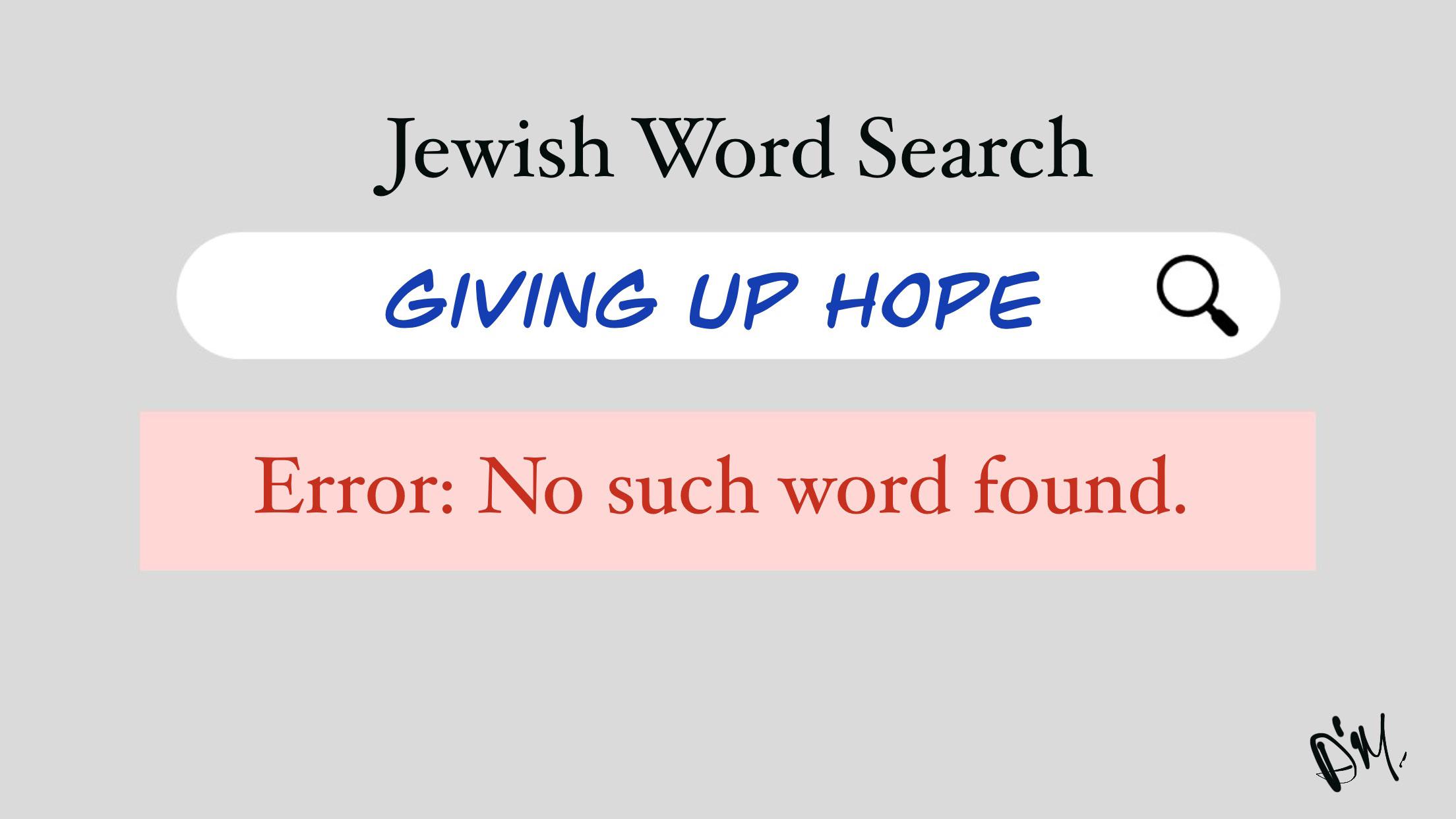
It is said that in each generation, a potential Moshiach, or Messiah, is living. When the Jewish community finally reaches its potential and lives according to the timeless laws of the Torah, that leader will arise, ushering in an era of perfect peace.
Jew
The name “Jew” comes from the name of Jacob and Leah’s fourth son, Judah (Yehudahin Hebrew). The Torah notes that after Leah gave birth to Judah she “declared ‘this time let me gratefully praise God’, therefore she called his name Judah” (Genesis 29:35). According to the great Italian Jewish commentator Rabbi Ovadia Sforno, Judah’s name reflects intense holiness: it not only contains the letters of God’s name, it also contains the root of hodu, the Hebrew word for thanksgiving and praise.
Before he died, Jacob blessed Judah with kingship: “The scepter shall not depart from Judah nor a scholar from among his descendants” (Genesis 49:10). Jacob’s prophecy was fulfilled: King David, from the tribe of Judah, eventually reigned over a united Israel. Following the death of King Solomon, the ancient kingdom of Israel split into two: the northern Kingdom of Israel, home to 10 of the Jewish tribes, and the southern Kingdom of Judah, home to the tribes of Judah and Benjamin. The ancient Assyrian empire wiped out the northern Kingdom of Israel in the 5th Century BCE and exiled the ten tribes; only the tribes of Judah and Benjamin remained to carry on Jewish tradition. Over the years, “Judah” came to refer to any Jew, regardless of tribe or status. The first person to be called a “Jew” in the Bible is Mordechai, in the Book of Esther, which describes the events of the holiday of Purim. The wording is curious: Mordechai seems to be called both a descendent of the tribe of Judah and a descendent of the tribe of Benjamin: “There was a man, a Jew (Yehudi) in Shushan the capital whose name was Mordechai….a Benjaminite” (Esther 2:5). The Talmud discusses this curious wording, concluding that Mordechai was indeed descended from the tribe of Benjamin. “Yet he was called a Yehudi (Judah-ite) because he rejected idolatry, and anyone who rejects idolatry is called a Yehudi” (Megillah 12b).
Hebrew
The word for Hebrew in Hebrew is Ivri. (In Hebrew, “b” and “v” sounds can
sometimes be expressed with similar letters; in the process of translation to English, the “v” became a “b”.) Ivri comes from the word “ever”, meaning the other side.
The first person in the Torah to be called an Ivri, a Hebrew, is Abraham, after he and his wife Sarah entered the land of Israel. On a literal level, Abraham and Sarah indeed were “ivri”, or people who came from the other side: in their case, they came from the north, across the Euphrates River.
On a deeper level, Abraham and Sarah were from “the other side” as well. They championed a belief in one God while the rest of the world indulged in idol-worship, and they lived lives of upright moral behaviour amidst a sea of depravity.
The second person in the Torah to be called an Ivri is Joseph, Abraham and Sarah’s great grandson, who found himself alone and isolated in Egypt, yet still lived by the moral code he’d inherited from his illustrious ancestors in Israel. After Joseph resists the advances of his master’s wife, the Torah refers to him as an Ivri.
After 3,000 years, we, the descendants of Abraham and Sarah, remain Hebrews, people who continue to cling to our belief in God and the moral code of the Torah, even when that means standing apart.
Mitzvah
In modern parlance, mitzvah often is used to mean a good deed. Many of these mitzvot (the plural of mitzvah) instruct us to live good, moral lives, for instance by giving charity, visiting the sick and extending hospitality. Mitzvot do guide us to lead good lives.
Yet the meaning of mitzvah goes much deeper. It means commandments given to us by God. The word mitzvah is used 300 times in the Five Books of Moses. Jews are obligated in 613 mitzvot (the plural of mitzvah); Gentiles are obligated to perform Seven.
In Jewish thought, actions profoundly affect our very being: what we do shapes who we are. By performing mitzvot we are aligning ourselves with the goals of the Divine. The word mitzvah is also related to the Aramaic word for join, tzevach. When we do mitzvot we are attaching ourselves to a greater good, elevating ourselves in the process.
18 the sydney jewish report | Mar 2024
FOODIES' CORNER
In this edition, we are pleased to feature an exciting collaboration between KA-certified catering sensation Soul Gourmet and Miramare Gardens. For the first time, an exquisite and affordable all-inclusive KA kosher wedding package is on offer.
Miramare Gardens is beautifully situated, located in Terrey Hills, along the Northern Beaches, just 30km from Sydney's CBD. You will be able to select from an enormous range of creative canapes, entrees, mains and desserts. For this special simchah, create your dream wedding cake, Bonbonniere, soft drink and alcohol varieties and more, all alongside the talented team who are there to support you.
There is a Garden Pavilion, Central Gardens with circular seating, a Piano Lounge and boutique accommodation for the wedding party and guests, if desired.
The aim is to provide our community with an elegant 5-star venue and bestquality kosher fare, without the burden of exorbitant costs.
Below we feature one of the popular canapes from this wonderful and novel KA kosher wedding package. The first KA kosher wedding was held recently and was the talk of the town!
INGREDIENTS
150gm Tasmanian Smoked Salmon
1 ripe avocado
50gm red capsicum
50gm Spanish onion
1 Tbspn baby capers
2 Tbspn fresh lemon juice
Salt & pepper, as needed Mixed micro herbs, two or more punnets (tiny sprout form of traditional herbs)
Good quality reduced red wine vinegar
METHOD
1. Cut the avocado into 1cm pieces and mix with capsicum, red onion,
Quiz answers
1. Adar 2
2. a) 7
3. To keep the lunar calendar in sync with the solar calendar, primarily to ensure Pesach takes place in the spring in Israel
4. King Achashverosh (Esther 1:1 and Esther 10:3)
5. We give charity to the poor (mattanot la-evyonim), present gifts of food to friends (mishloach manot) and hold a Purim Seudah or festive meal
6. It was a horse that the king himself had ridden and one with a royal crest or crown placed on its head (Esther 6:8)
7. Lot, as in lottery (Esther 3:7)
8. Shushan was the name of Persia’s capital city – being a walled city, it was difficult to achieve victory there as easily, as open areas and the
Tasmanian smoked salmon, avocado salsa & micro herb salad
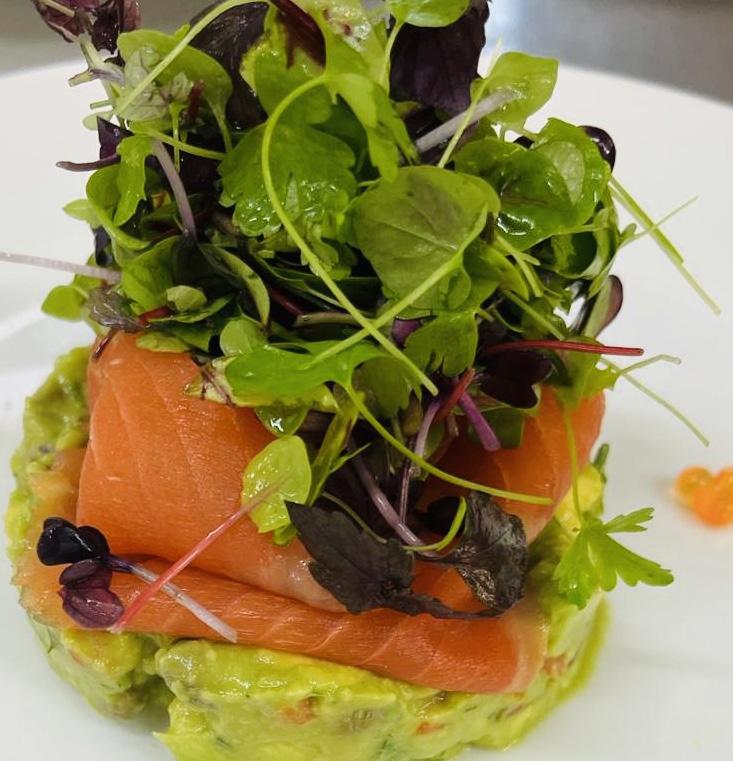
baby capers, lemon juice, salt and pepper (the salsa).
2. Assemble salsa into 80mm circular ring, lay smoked salmon gently folded on top of salsa and do not squash.
fighting went on an extra day. To this day, places like Jerusalem (an ancient walled city) celebrate Purim one day later than the rest of the Jewish world i.e. on Adar 15
9. Massechet Megillah
10. c) The Amalekites
11. On the preceding Thursday
12. The custom of masquerading in costumes and the wearing of masks probably originated among the Italian Jews at the end of the 15th century. The concept was possibly influenced by the Roman carnival and spread across Europe
13. A comic play or narration somehow associated with the Purim story
14. Hamantaschen are Haman’s pockets, Oznei Haman are Haman’s ears
15. b) 2045
16. Frankfurt. Purim Vinz commemorates the Fettmilch uprising (1616–1620), in
3. Mix micro herbs in small bowl and place on top of smoked salmon.
4. Make circles around salsa with reduced red wine vinegar in a creative design of your choice.
which Vincenz Fettmilch attempted to exterminate the Jewish community. It is commemorated one week after Purim
17. Kristallnacht. Purim was banned in Germany on November 10, 1938
18. Nuremburg, just before he ascended the scaffold, before his execution
19. Josef Stalin. Due to Stalin's death, nationwide pogroms against Jews throughout the Soviet Union were averted, as Stalin's infamous doctors' plot was halted
20. Joan Collins
21. According to the Book of Esther 2:7, Hadassah was Esther’s Hebrew name
22. President Joe Biden
23. A ra'ashan (from the Hebrew ra-ash, meaning "noise") is a toy ratchet used to create a noise in synagogue while the name of Haman is recited during the reading of the Megillah. It
To contact Miramare Gardens, visit www.miramaregardens.com. au/weddings, email: info@ miramaregardens.com.au or call 9450 2000
is better known by its Yiddish name – a gragger
24. Their annual monetary offering to the Temple treasury, known as the half-Shekel 25. Moses
Spelling bee answers
Jewish Answer: ETROGIM. Here is a list of some common words (“yes”, we know there are more words in the dictionary that can work, but these words are the most common): GRITTIER, GROGGIER, GREETER, GRIMIER, GRIMMER, GROGGER,GROOMER, IMMERGE, REMERGE, TRIGGER, EMERGE, ÉMIGRÉ, GETTER, GOITER, GOOIER, GORGER, GORIER, GROTTO, MERGER, REGIME, GORGE, GREET, GRIME, GROOM, MERGE, RIGOR, ROGER and TIGER.
Questions/comments: email Yoni at koshercrosswords@gmail.com
MIRAMARE GARDENS KOSHER CATERING KA-CERTIFIED 19 the sydney jewish report | Mar 2024
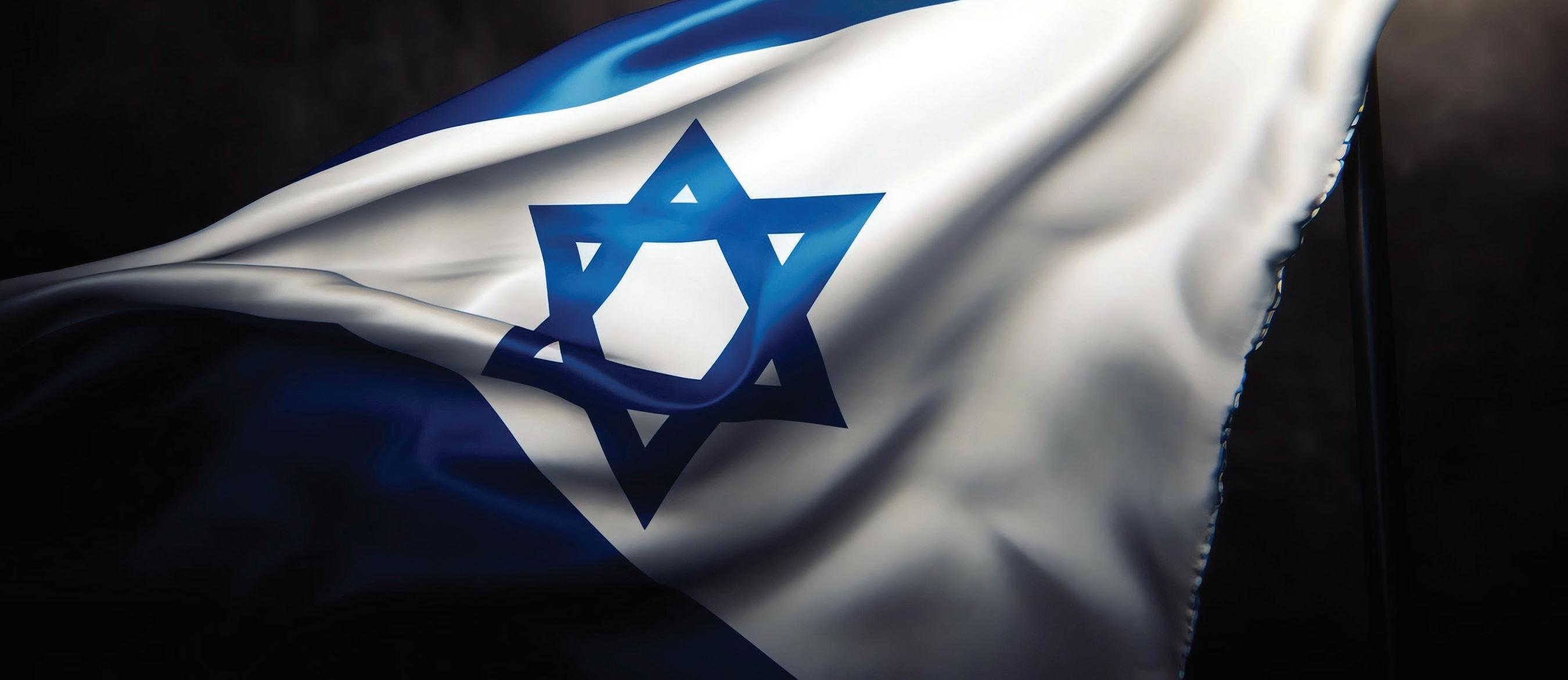














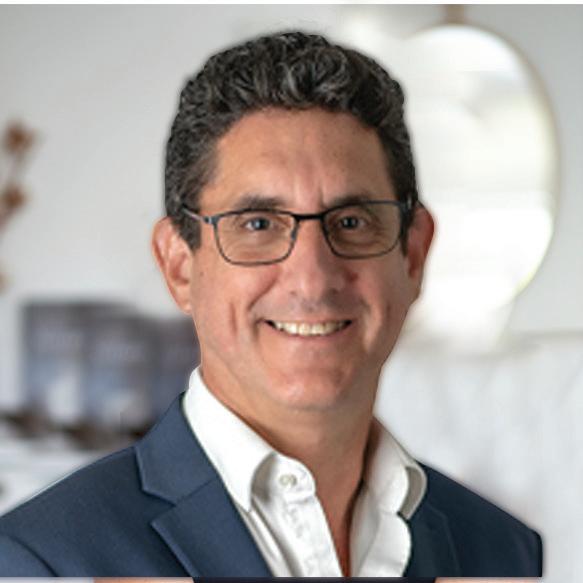
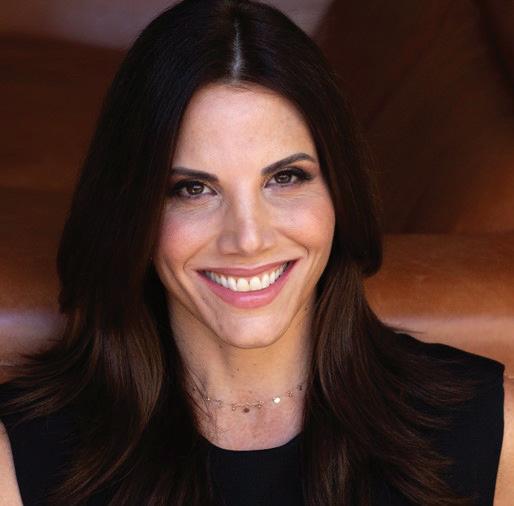
IR YAMIM South Netanya 20% deposit to secure the deal with linear payments until delivery NIS 4.9MIL From YEHEZKEL 44 North Tel Aviv 20% deposit to secure the deal with linear payments until delivery NIS 5.6MIL From RA’ANANA OSTROWSKY STREET Ra’anana NIS 2.95MIL PRE-SALE PRICES From MOSHE SHARET 60 Tel Aviv 10% deposit to secure the deal with linear payments until delivery NIS 3.75MIL HAIFA COMMUNITY HAIFA Haifa Port 20% deposit to secure the deal with linear payments until delivery NIS 1.45 JERUSALEM MEKOR HAIM Jerusalem 10% deposit to secure the deal with linear payments until delivery NIS 3.14MIL SOUTH NETANYA TEL AVIV 20% deposit to secure the deal with linear payments until delivery TEL AVIV PRE-SALE PRICES From PRE-SALE PRICES From PRE-SALE PRICES From OWN Now’s the time to secure your future in Israel Integrity and trust are the foundation of the relationships we’ve built with clients over the past 25 years. We will help you fulfill your dream of owning property in Israel. CONNECT Let’s start a conversation. Our services include: Property Search Sales Administration Legal Services Project Management Interior Design Property Management Scan the QR code Visit our website: www.hold.co.il Contact us: info@hold.co.il +972 58 631 9754 Disclaimer - Specific apartments and prices are subject to availability, and advertised materials are as of the date of advertising. Prices and availability could change and vary from time to time without prior notice. We cannot guarantee a specific apartment or price without signing a registration form. NICCI RAZ Head of Marketing & Sales JULIAN NATHAN Managing Director




 AROUND
AROUND








































 Montefiore occupational therapist Kimberly Gadd
Montefiore occupational therapist Kimberly Gadd


















 Rally for the hostages during the New York City Marathon
A father and son at a hostage rally in midtown
An evocative display at 66th Street and Broadway
Rally for the hostages during the New York City Marathon
A father and son at a hostage rally in midtown
An evocative display at 66th Street and Broadway

























